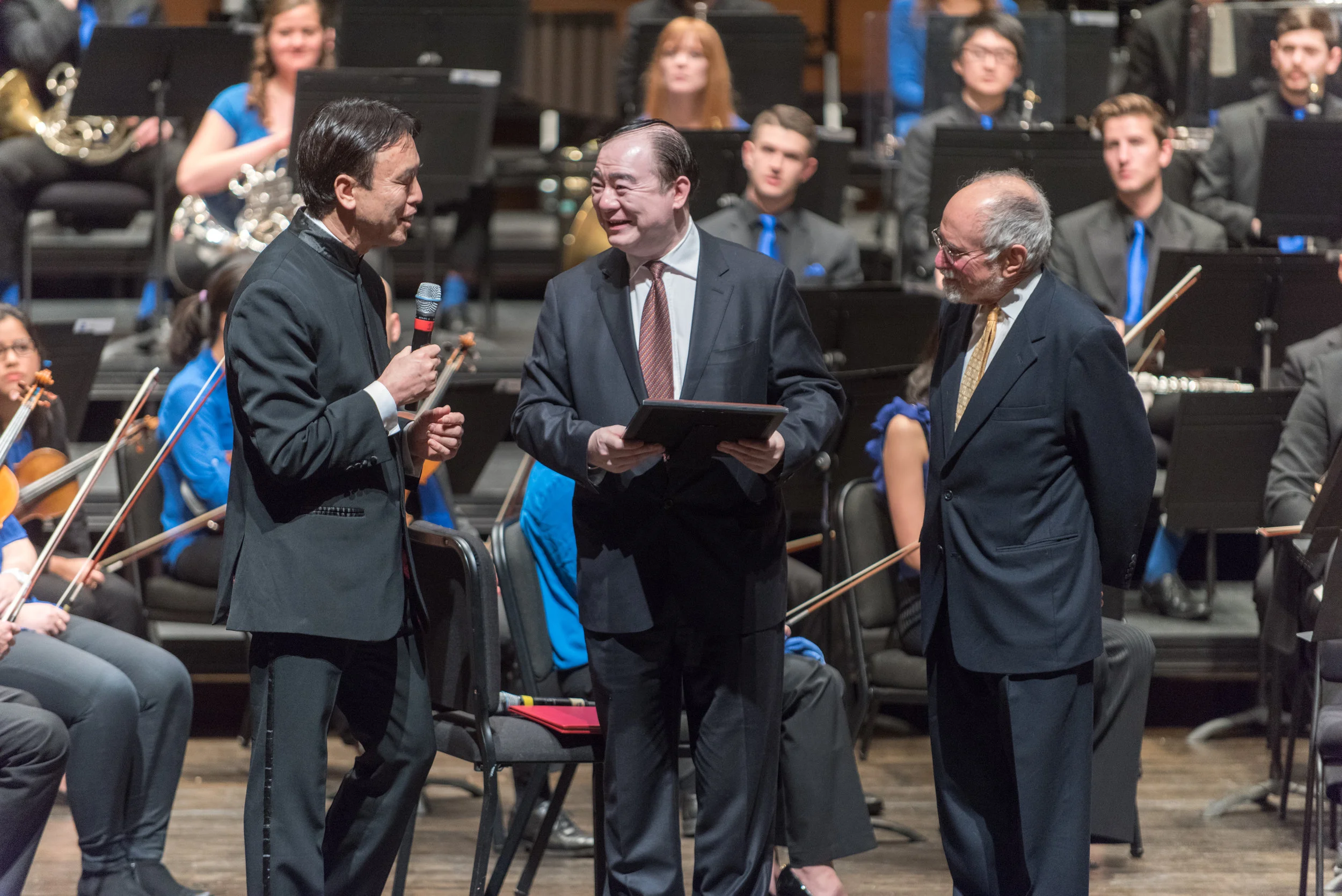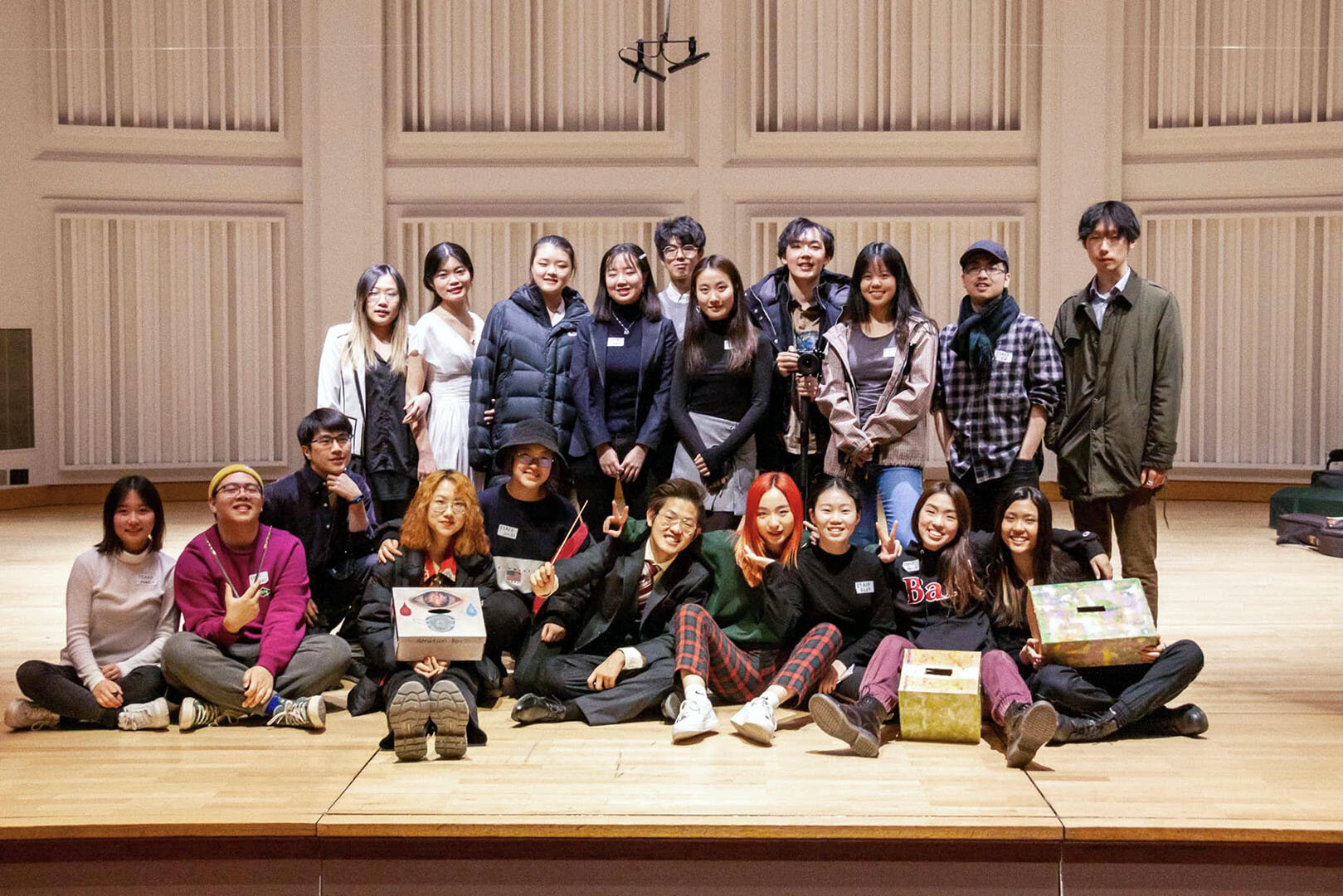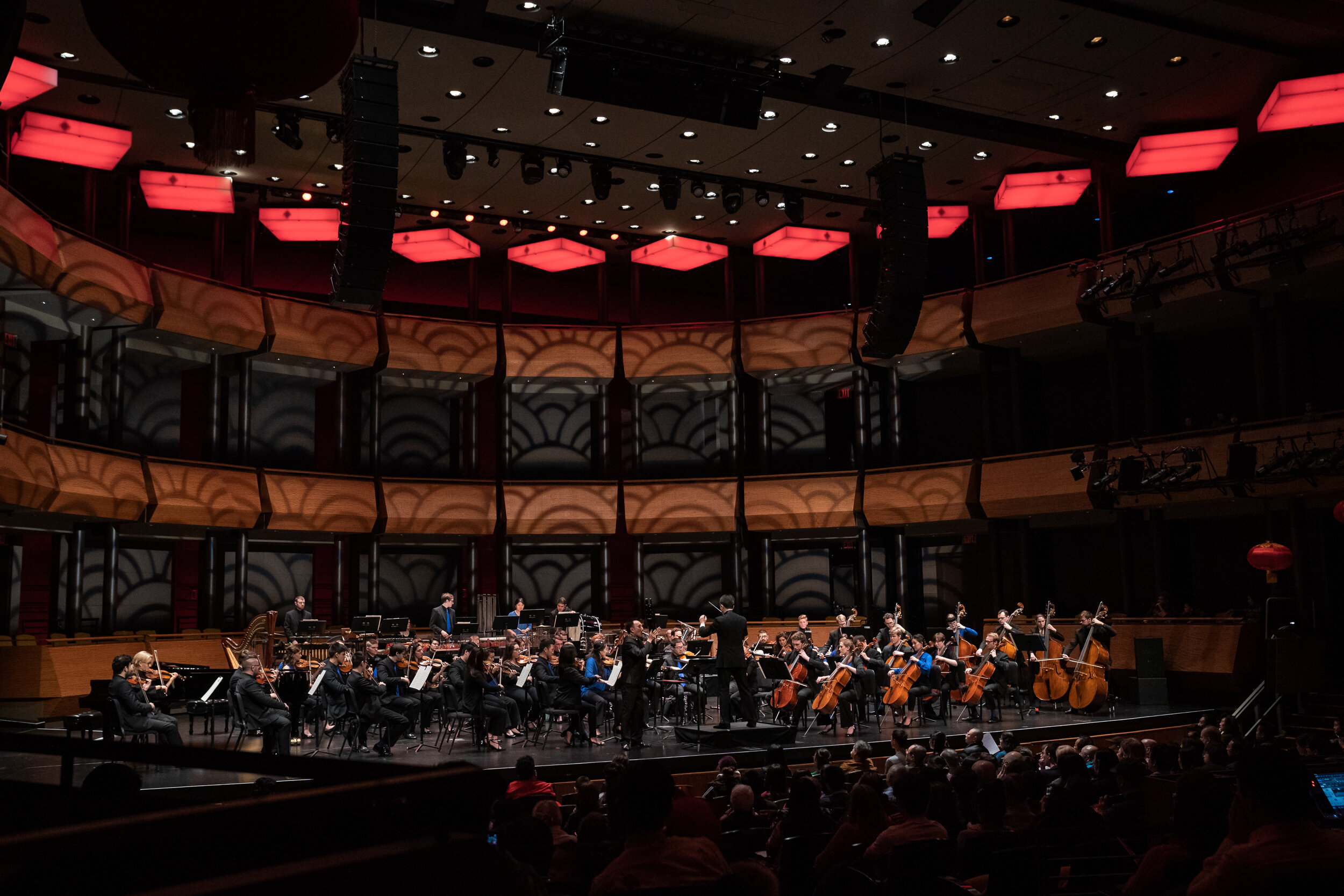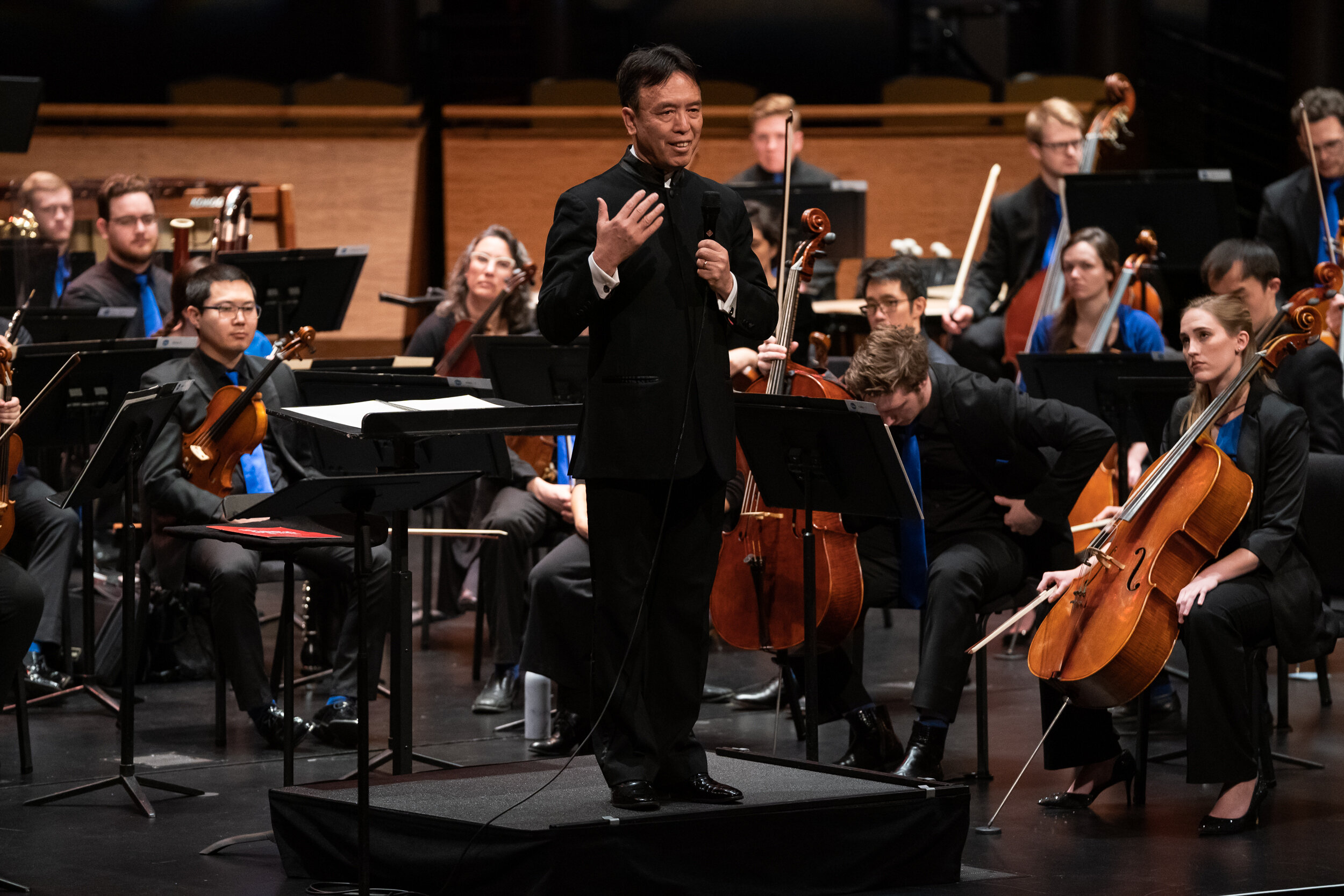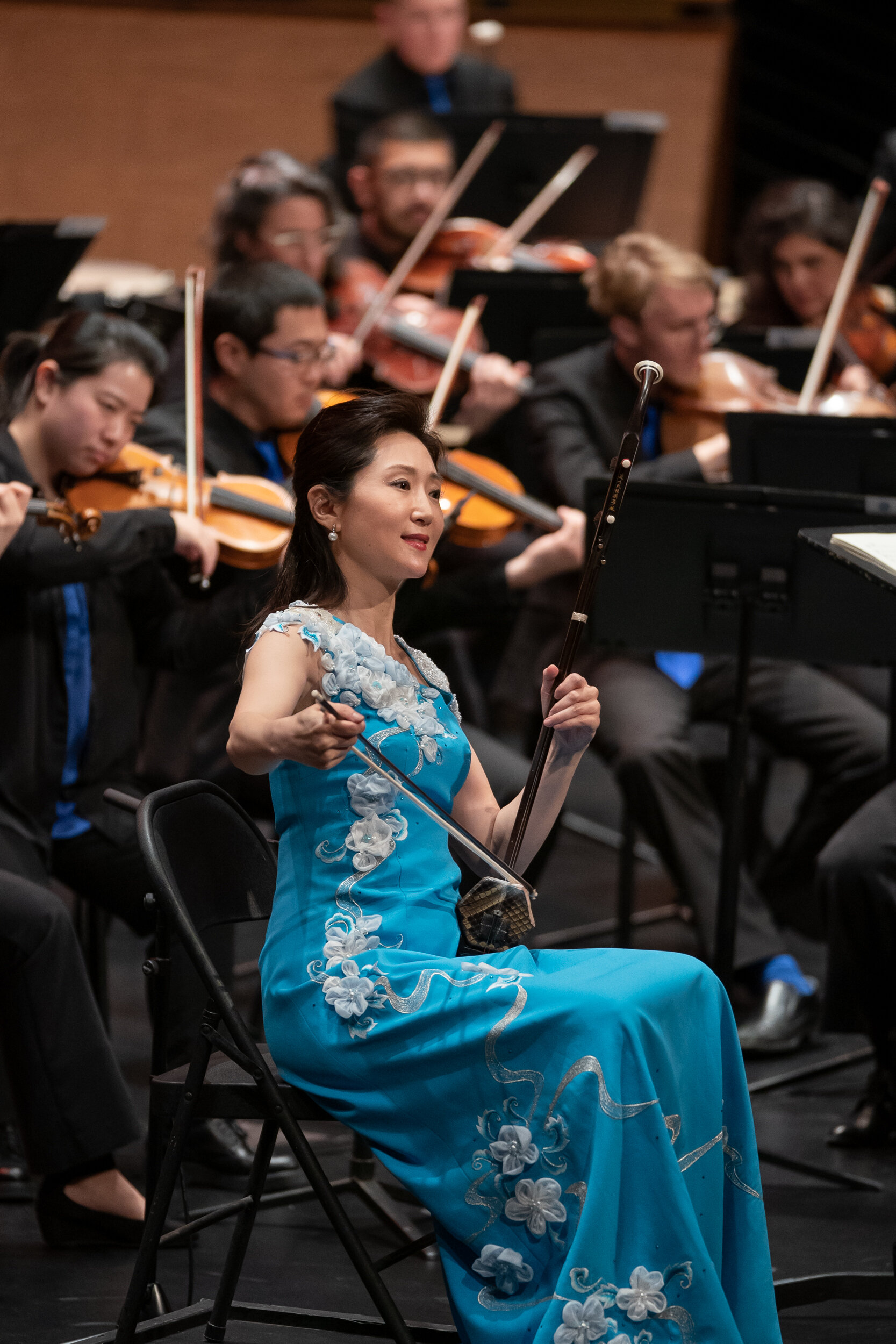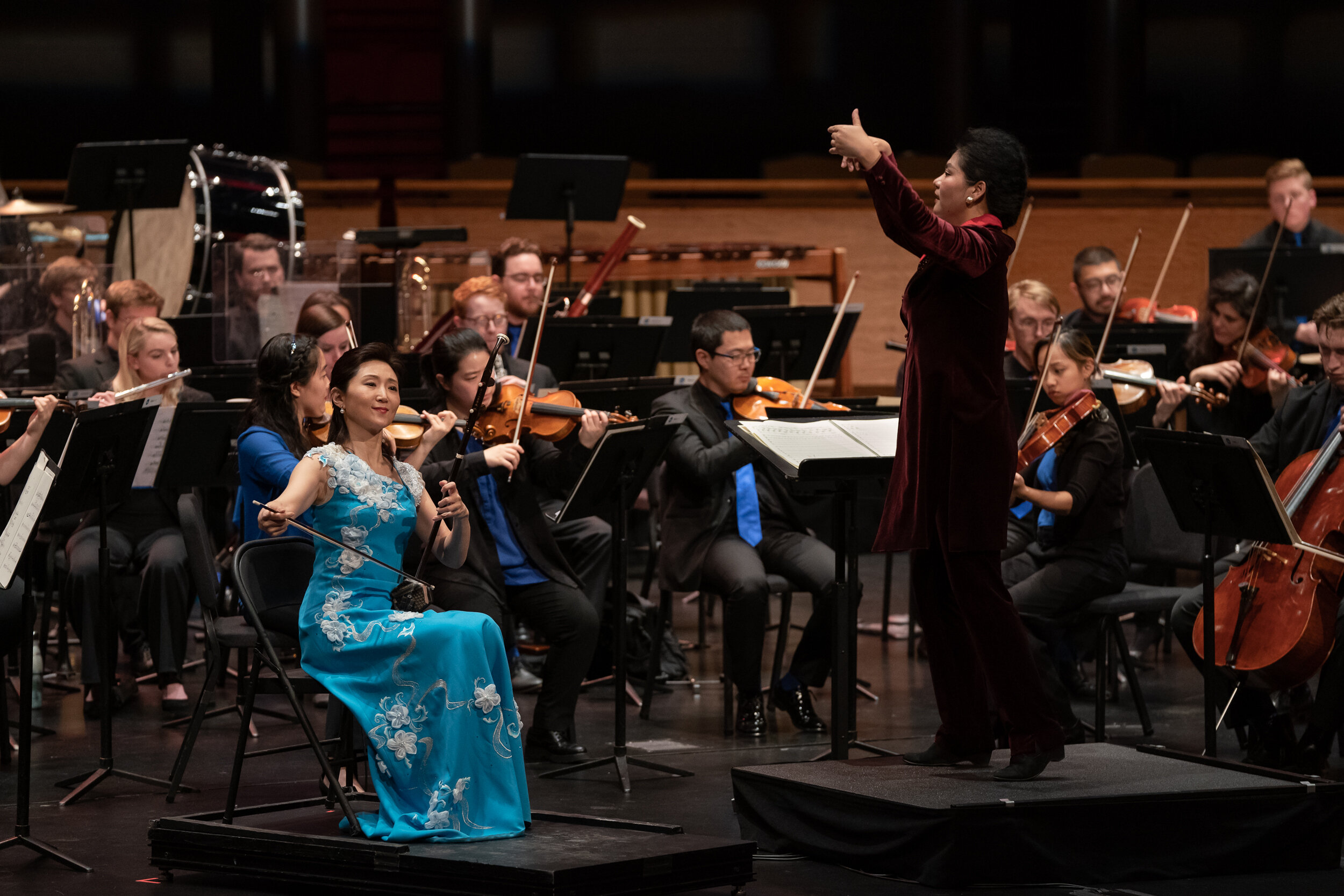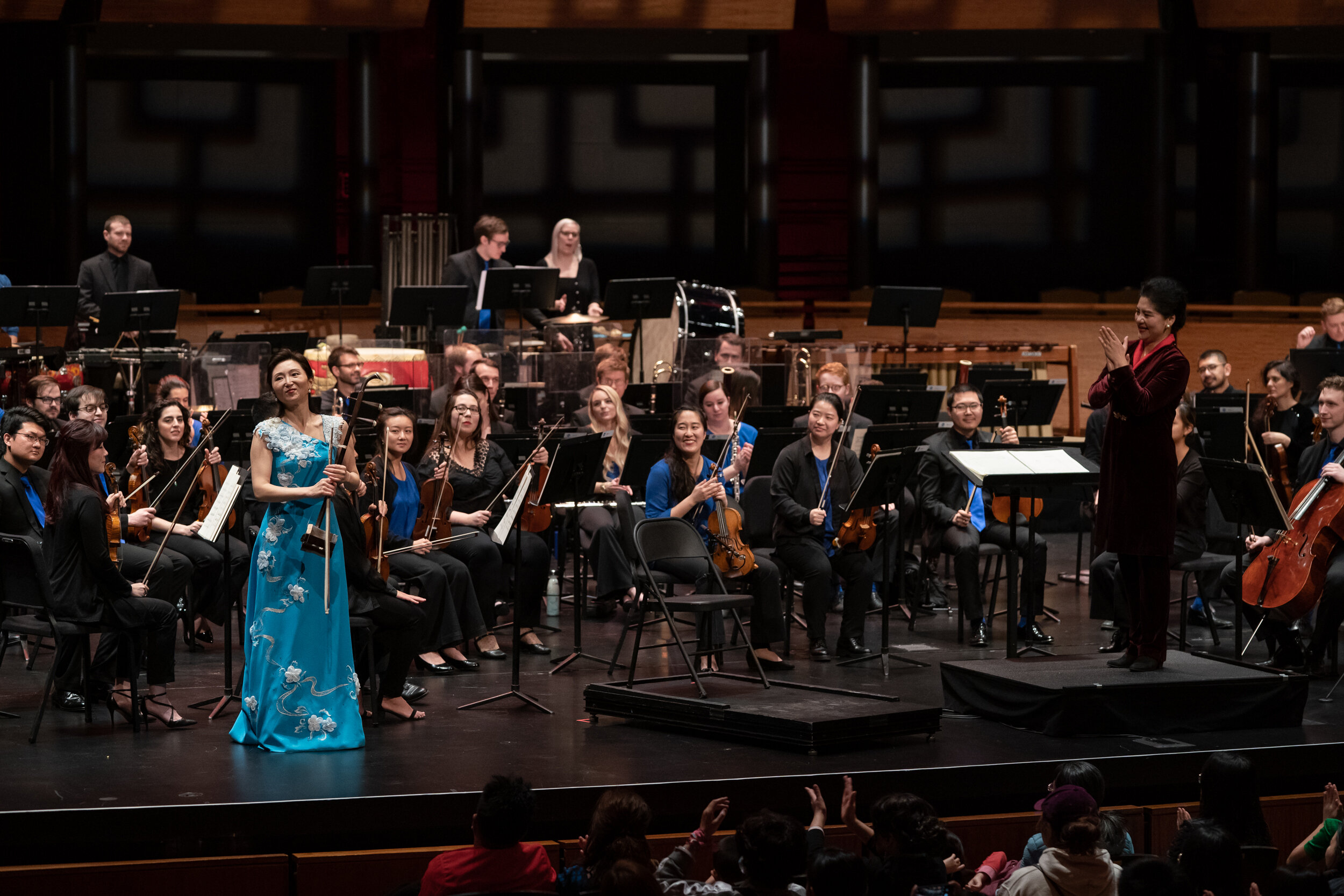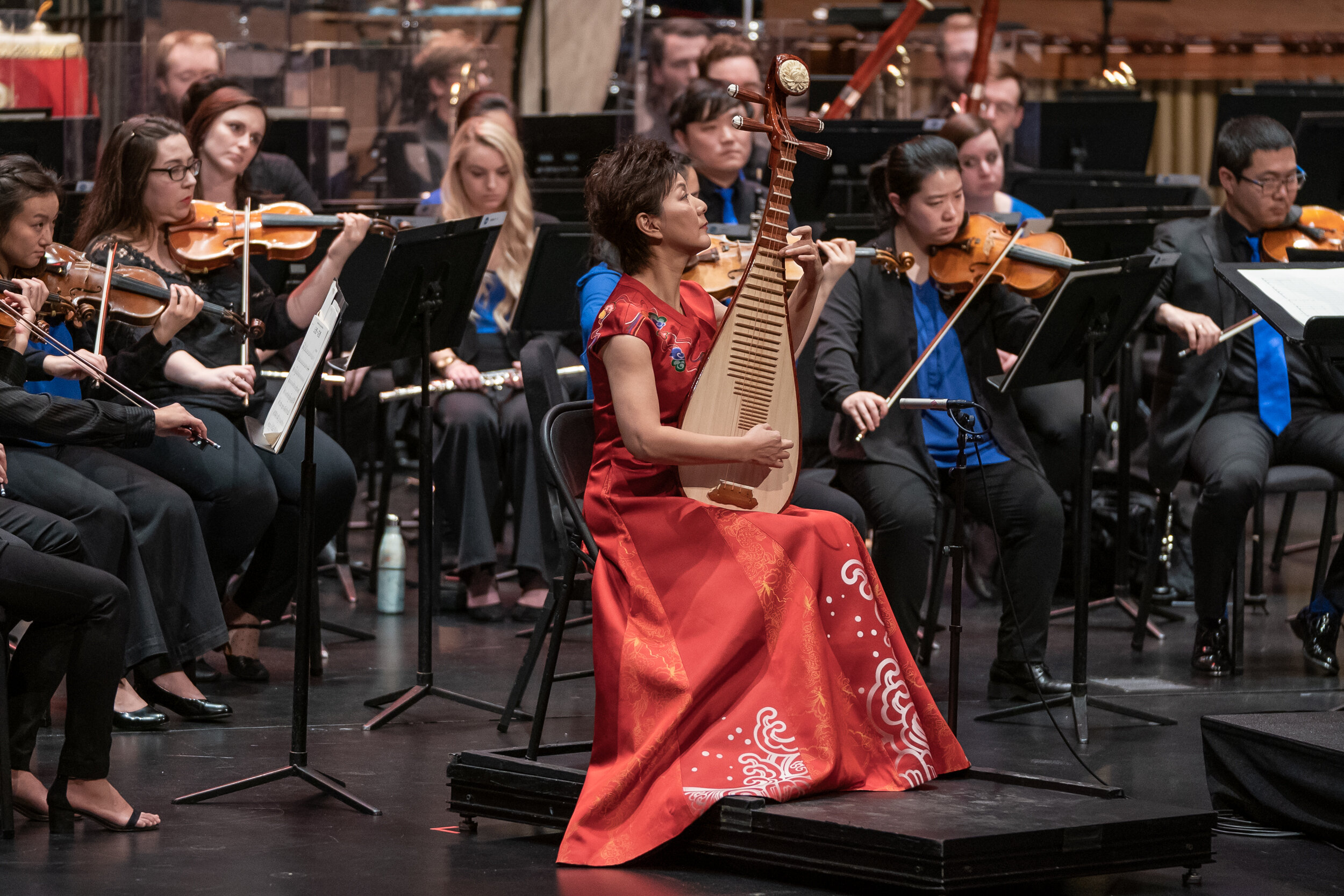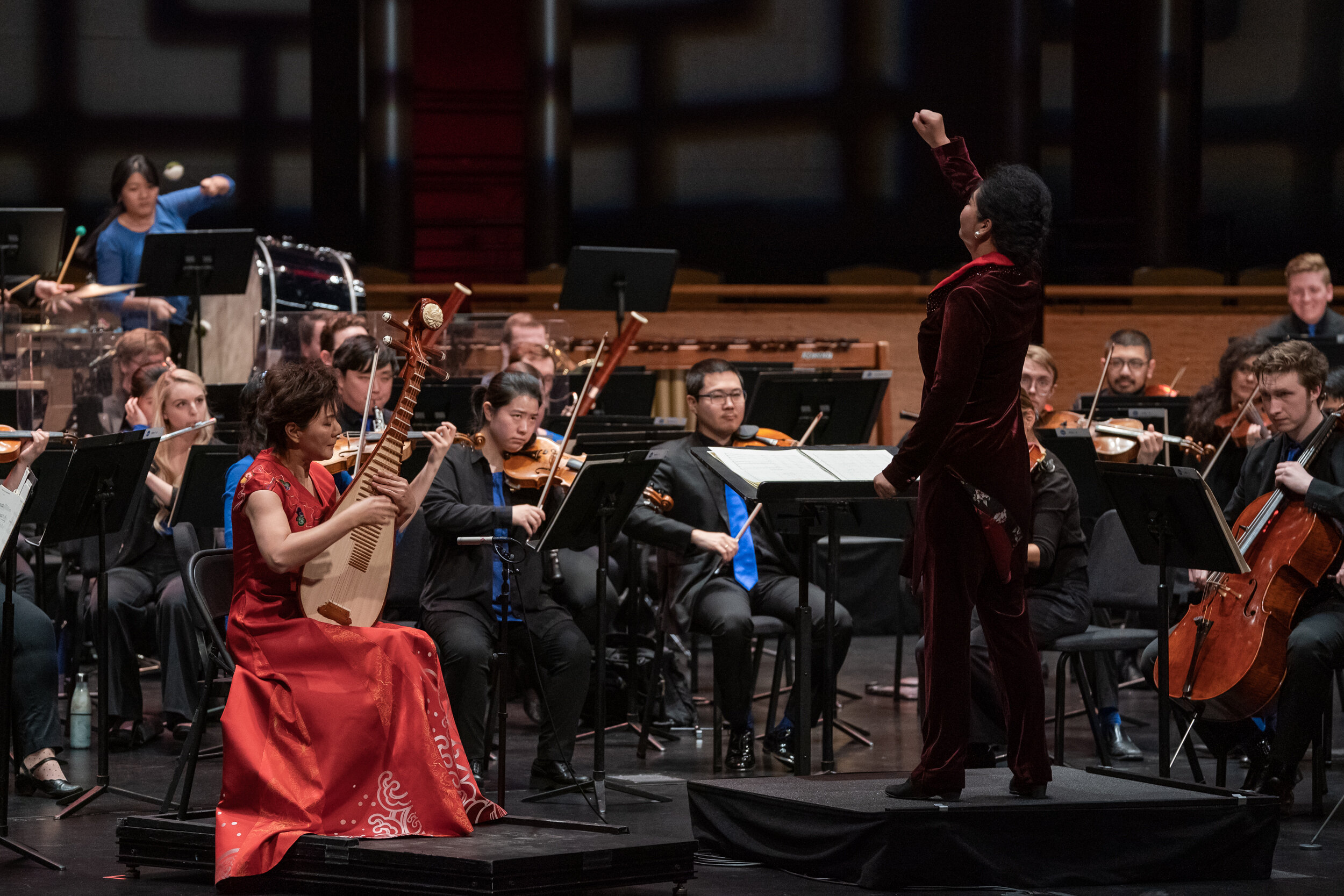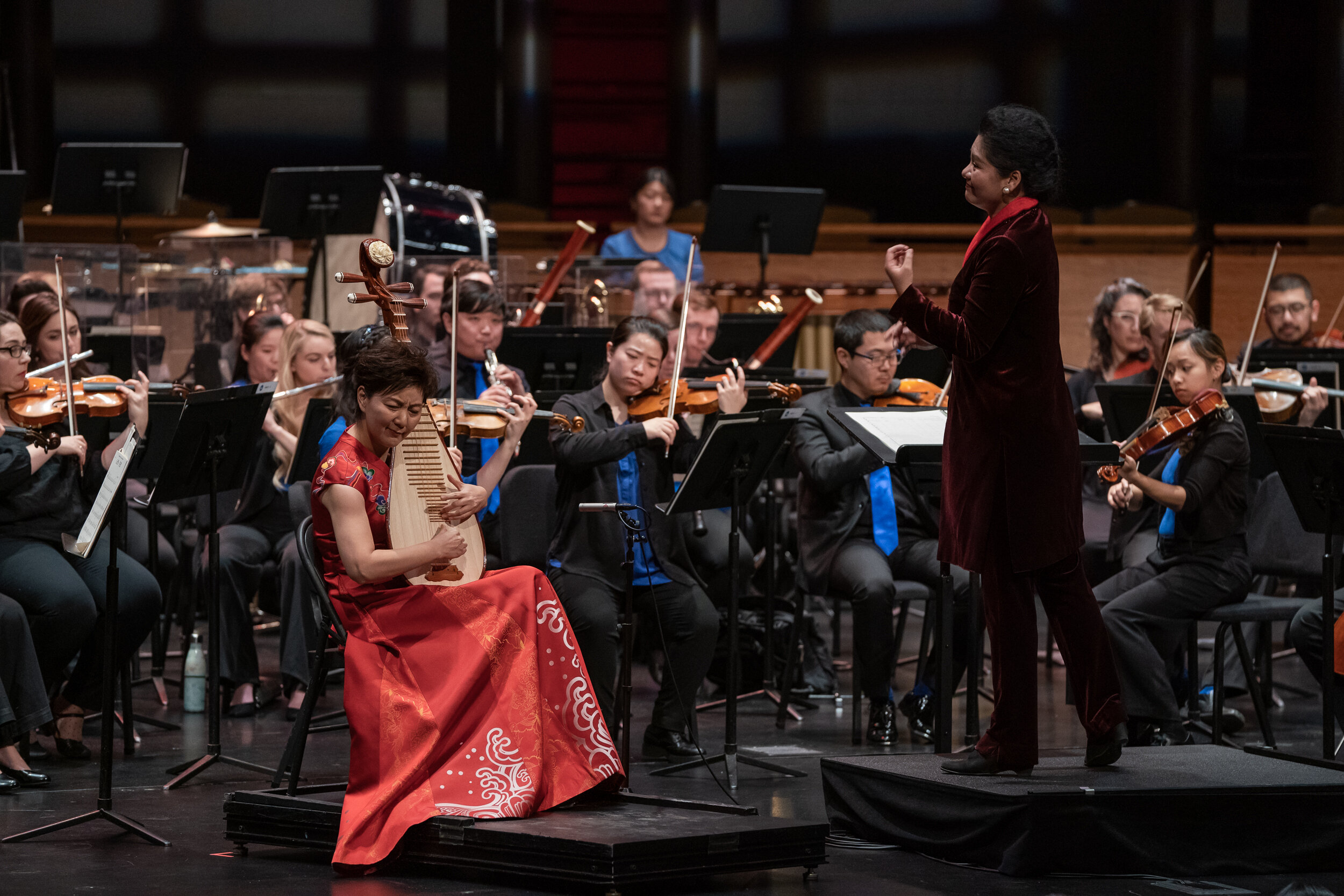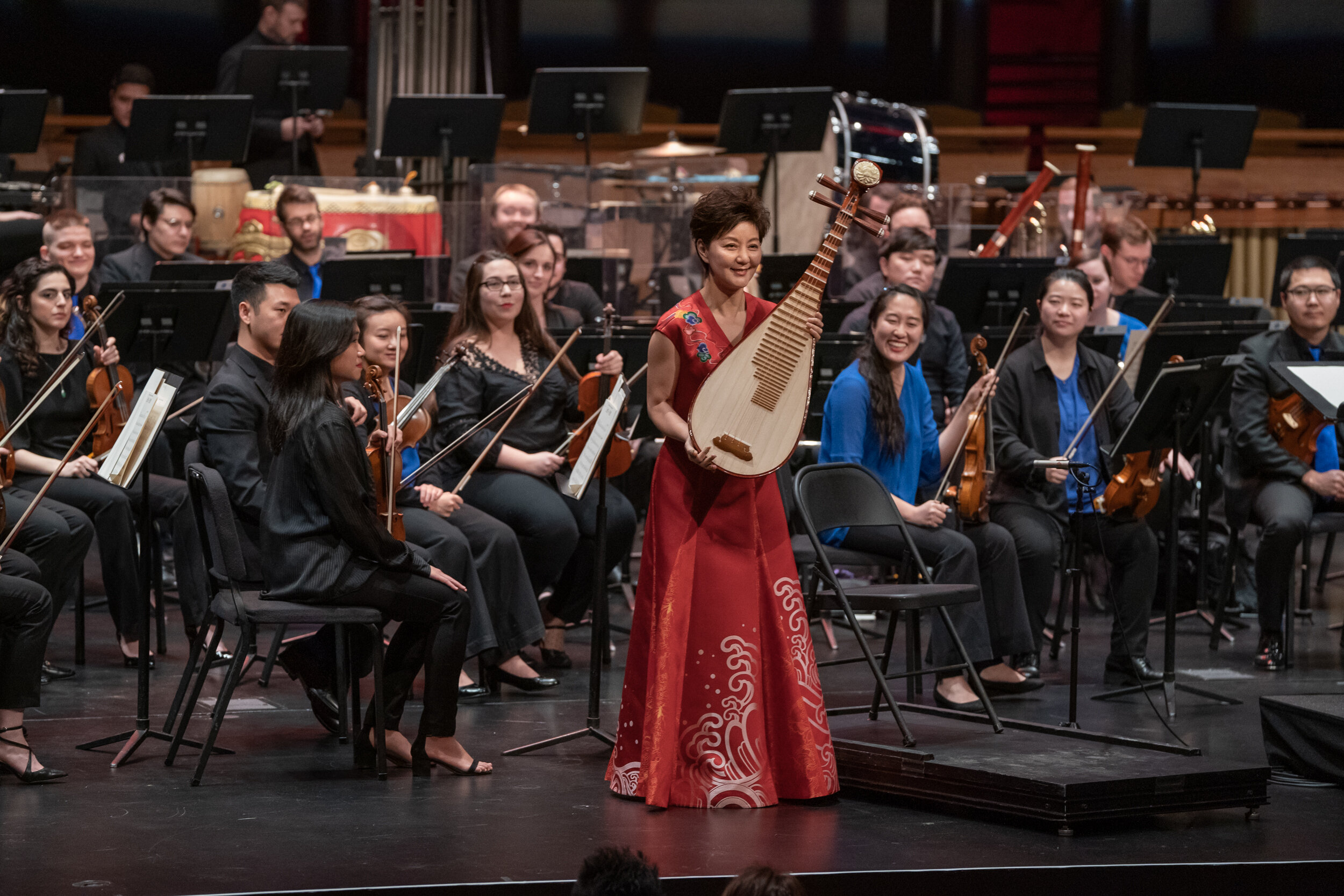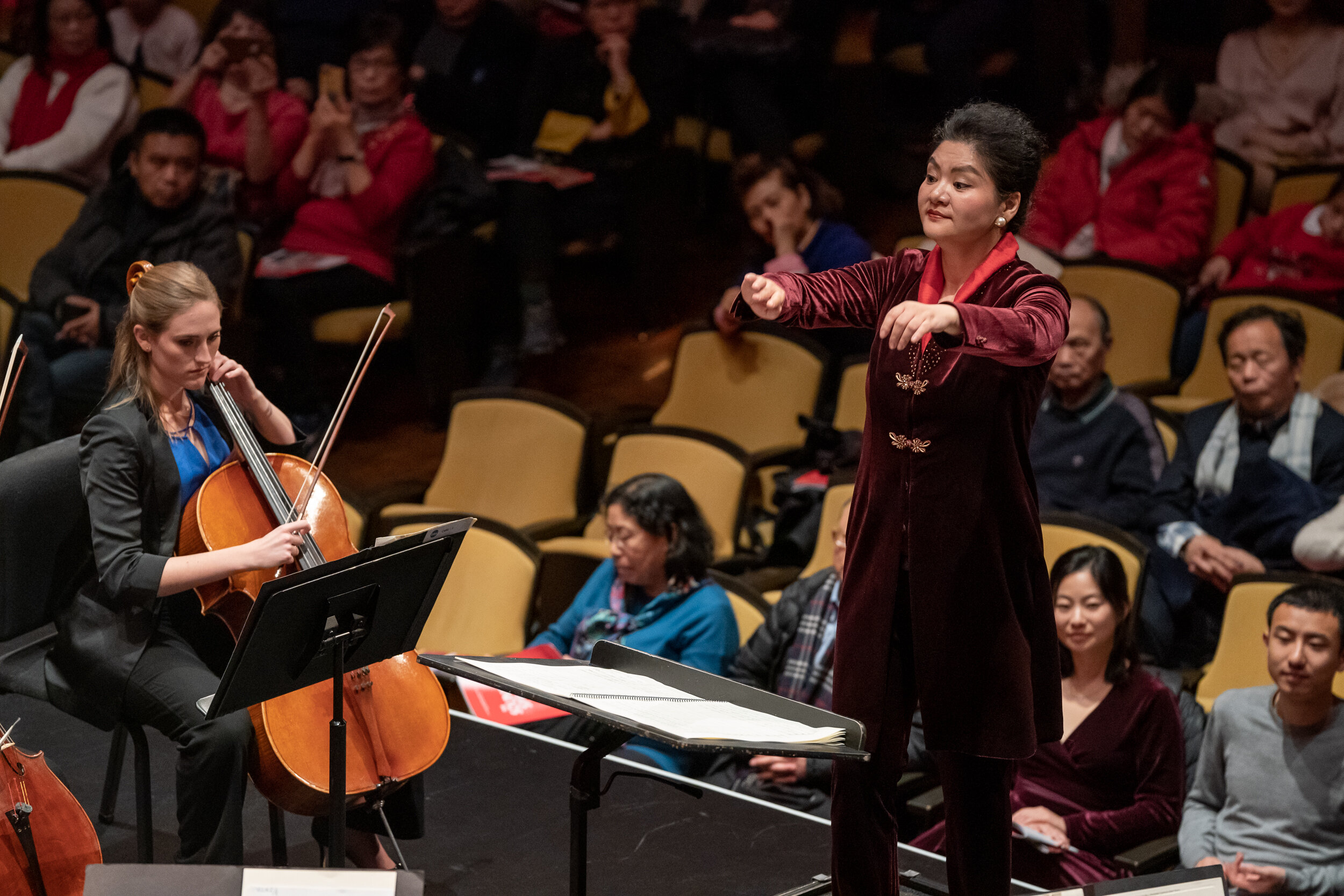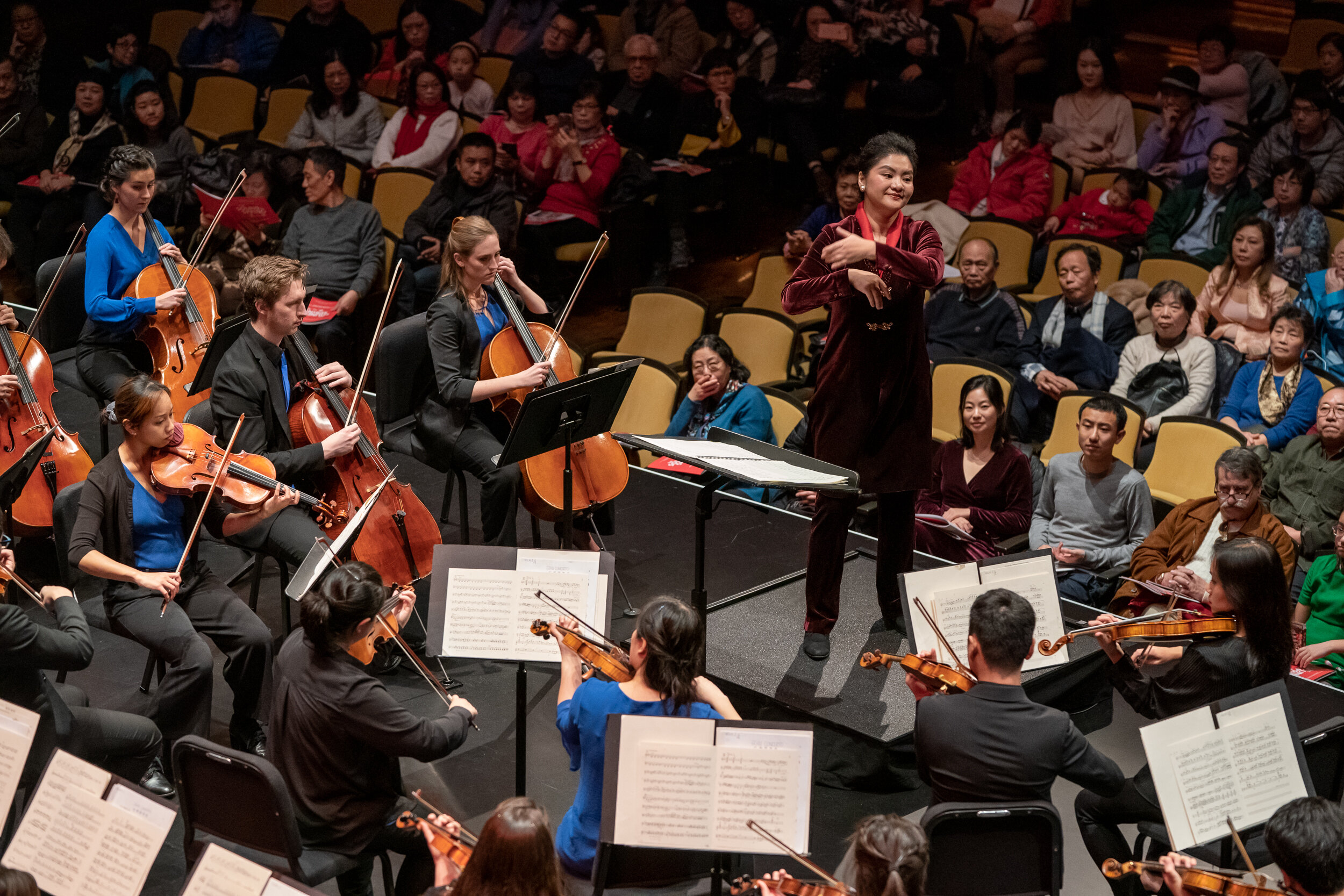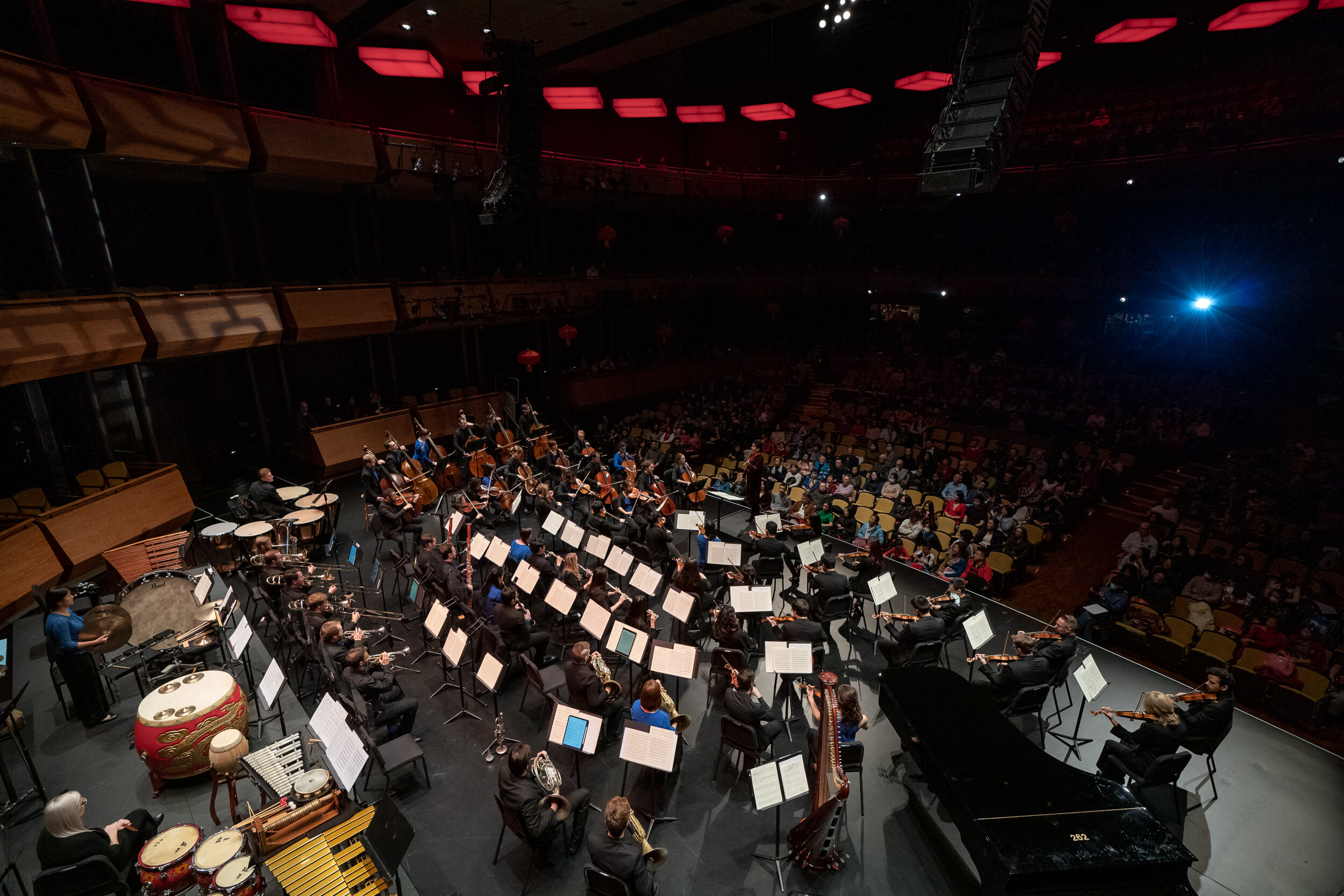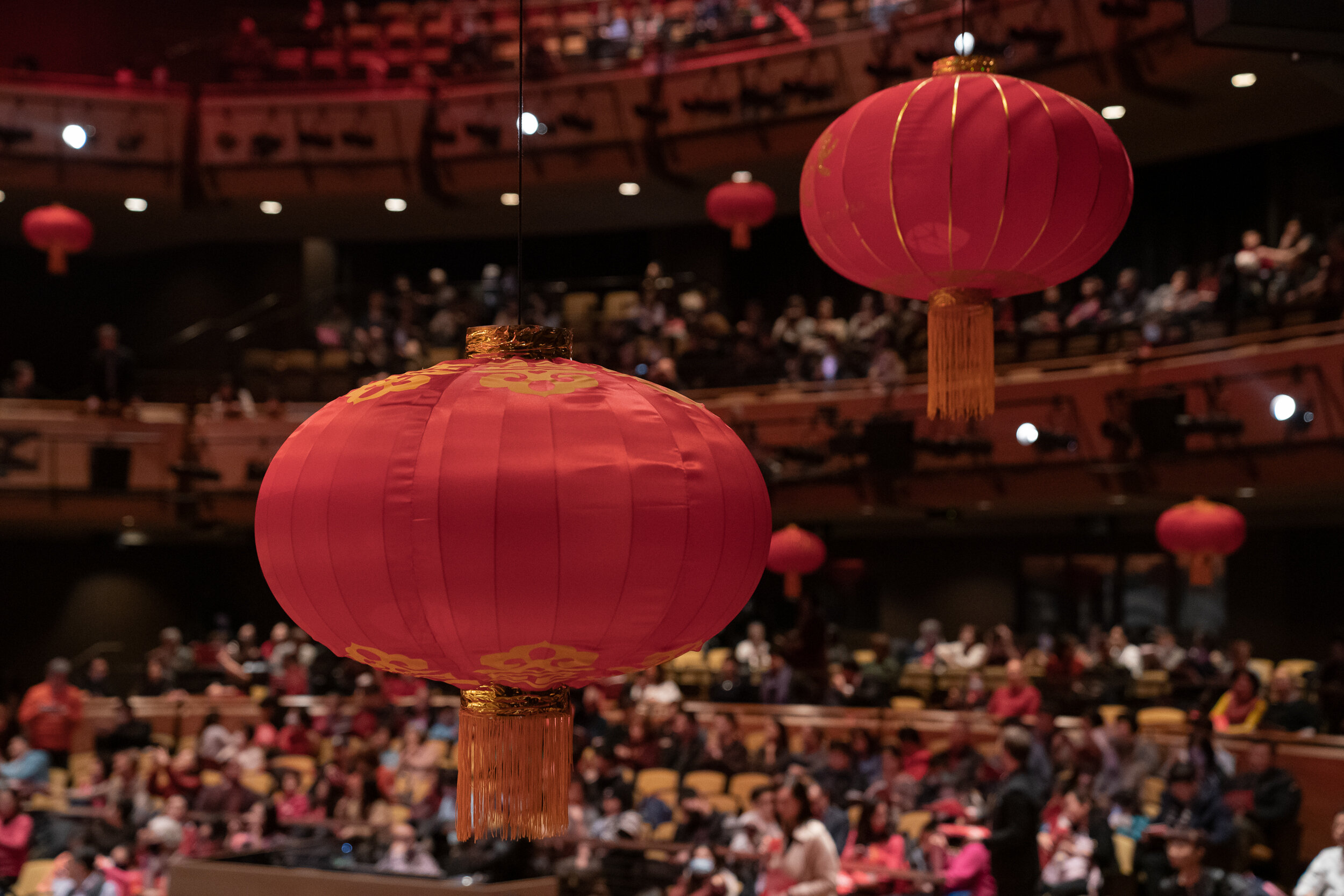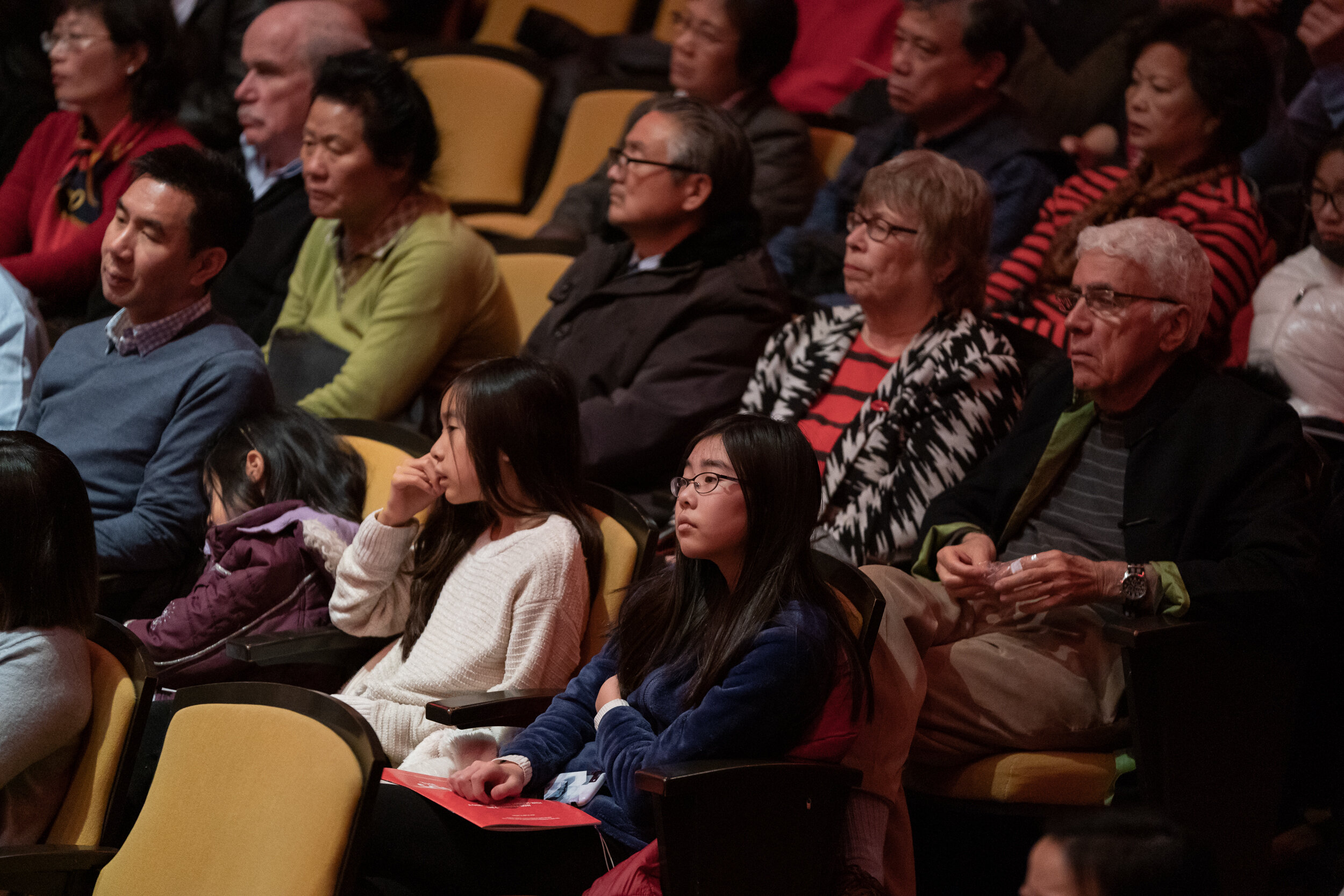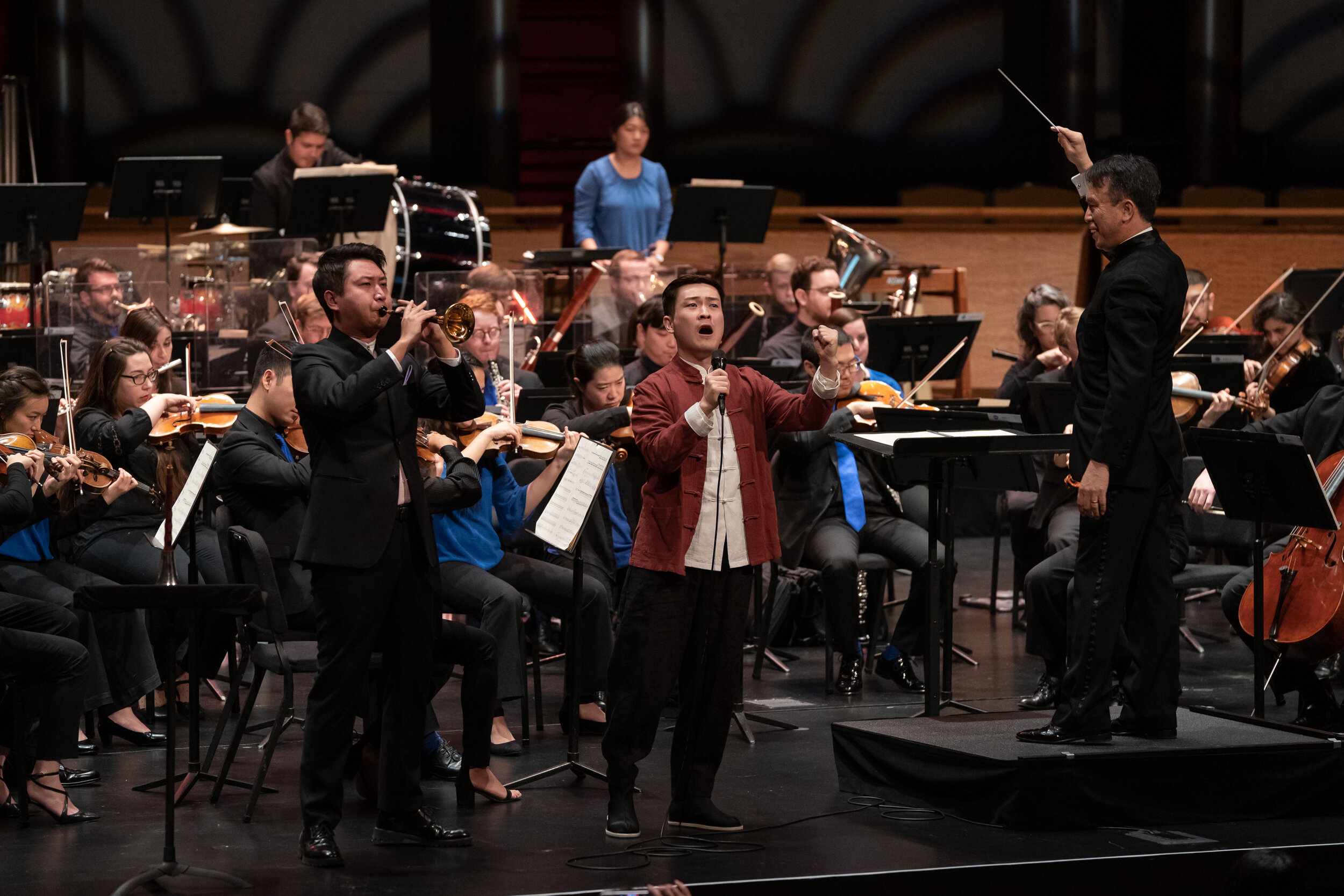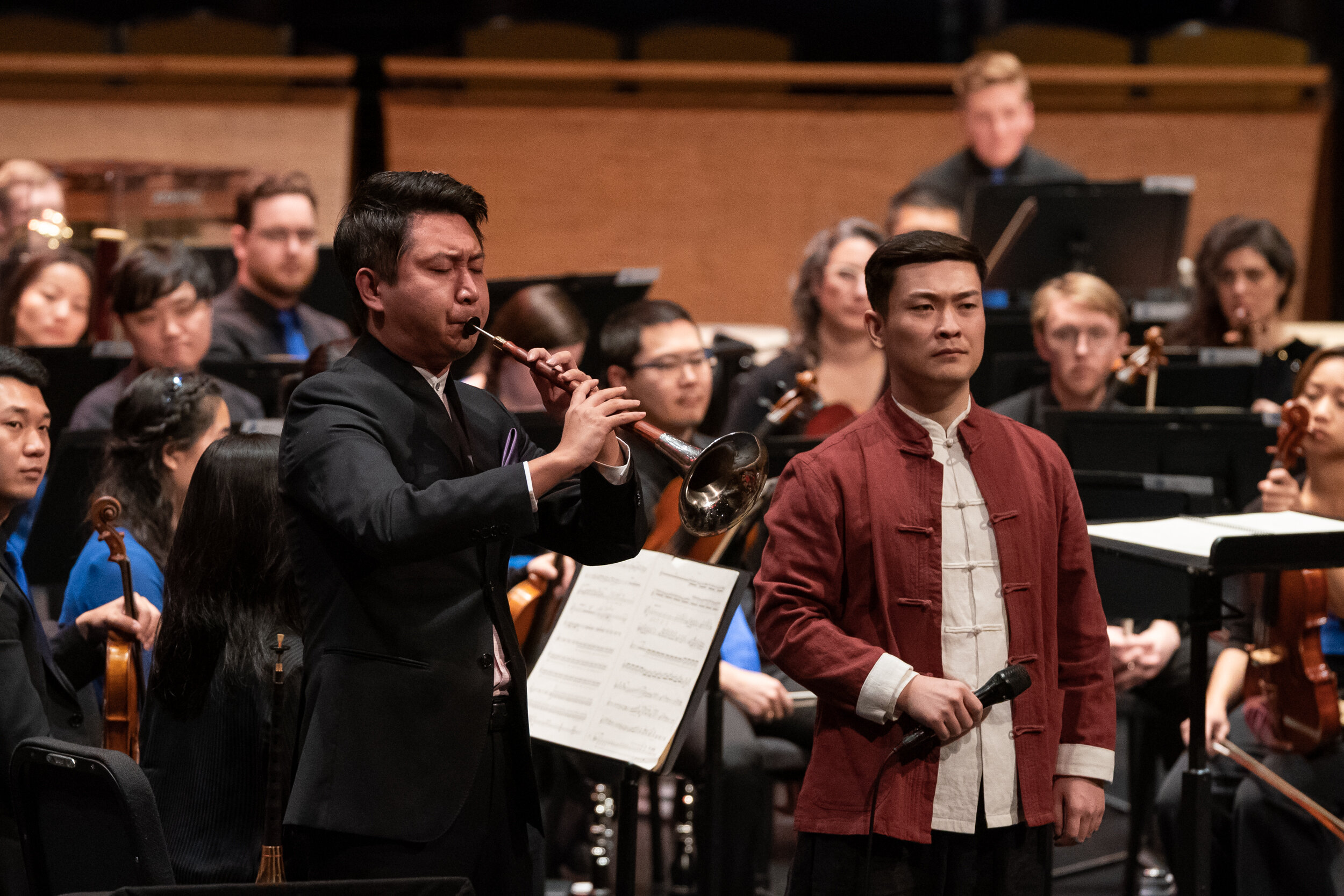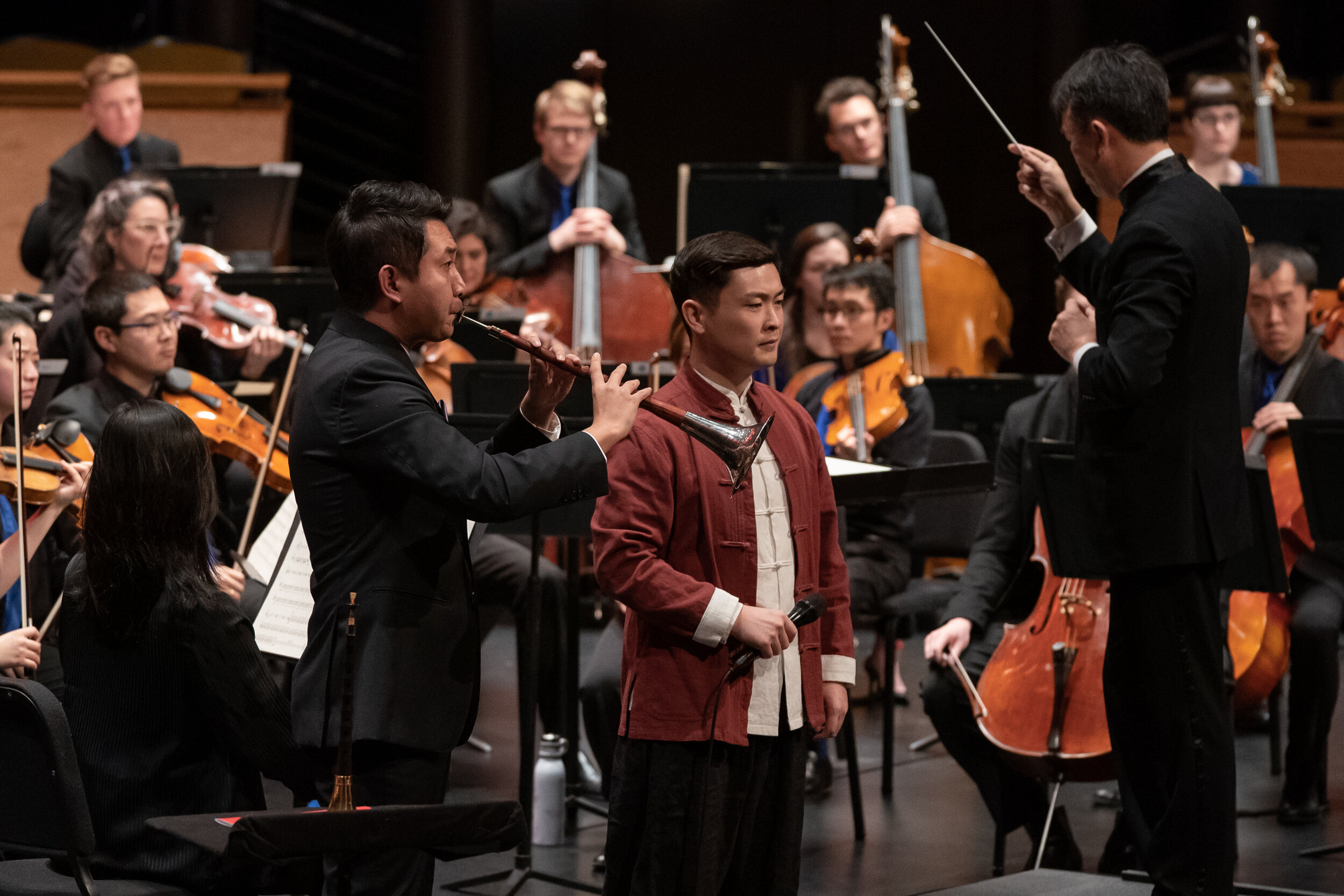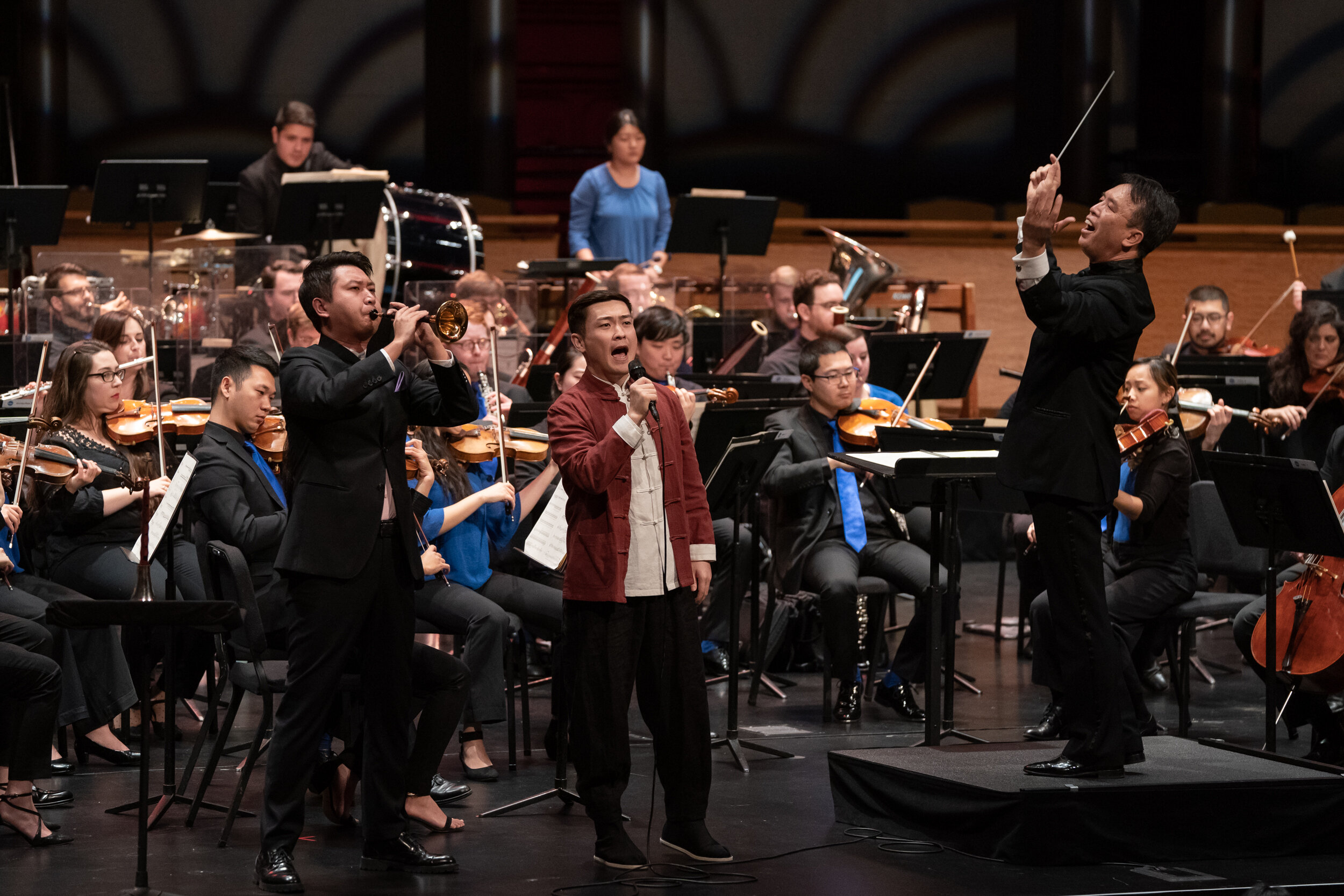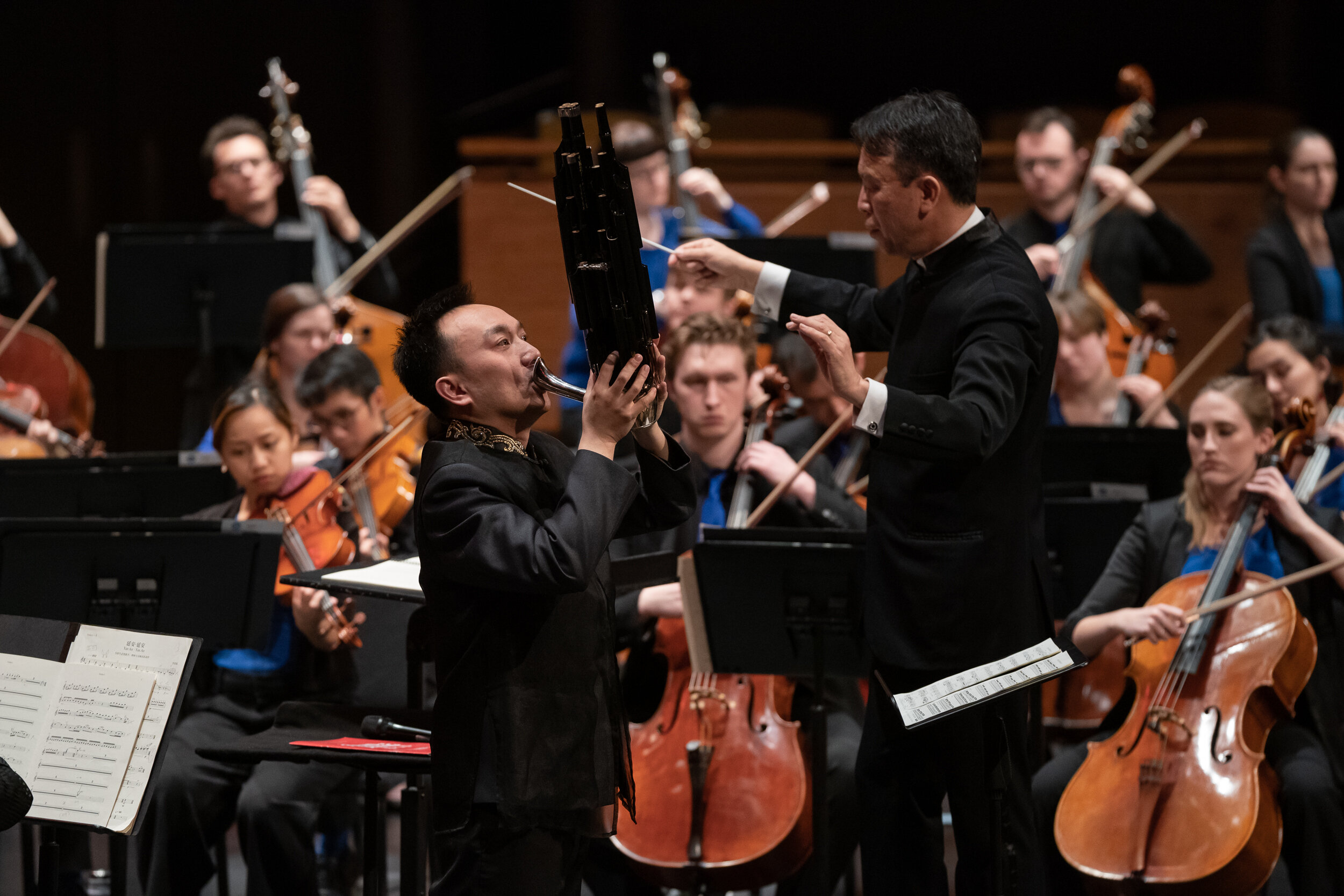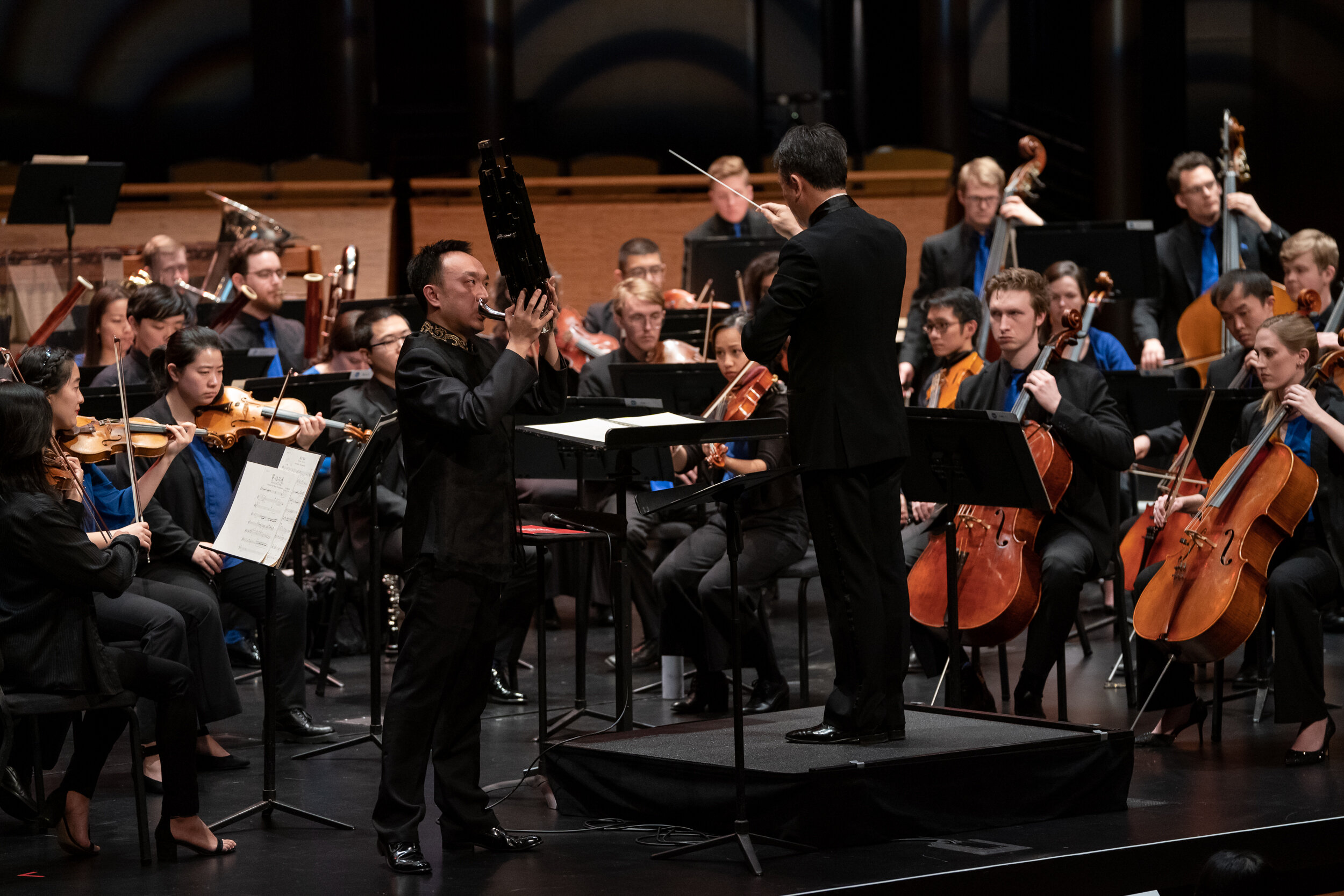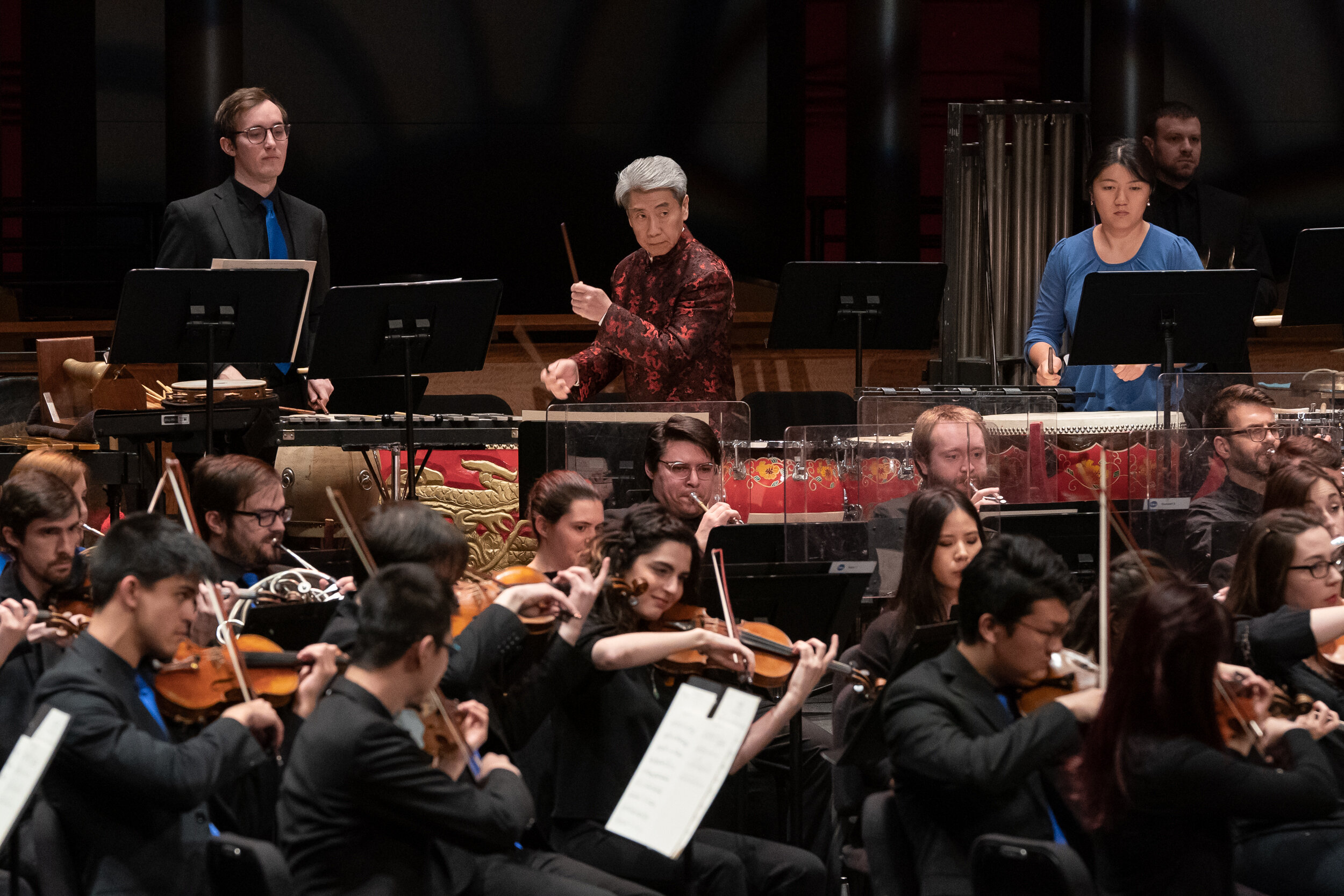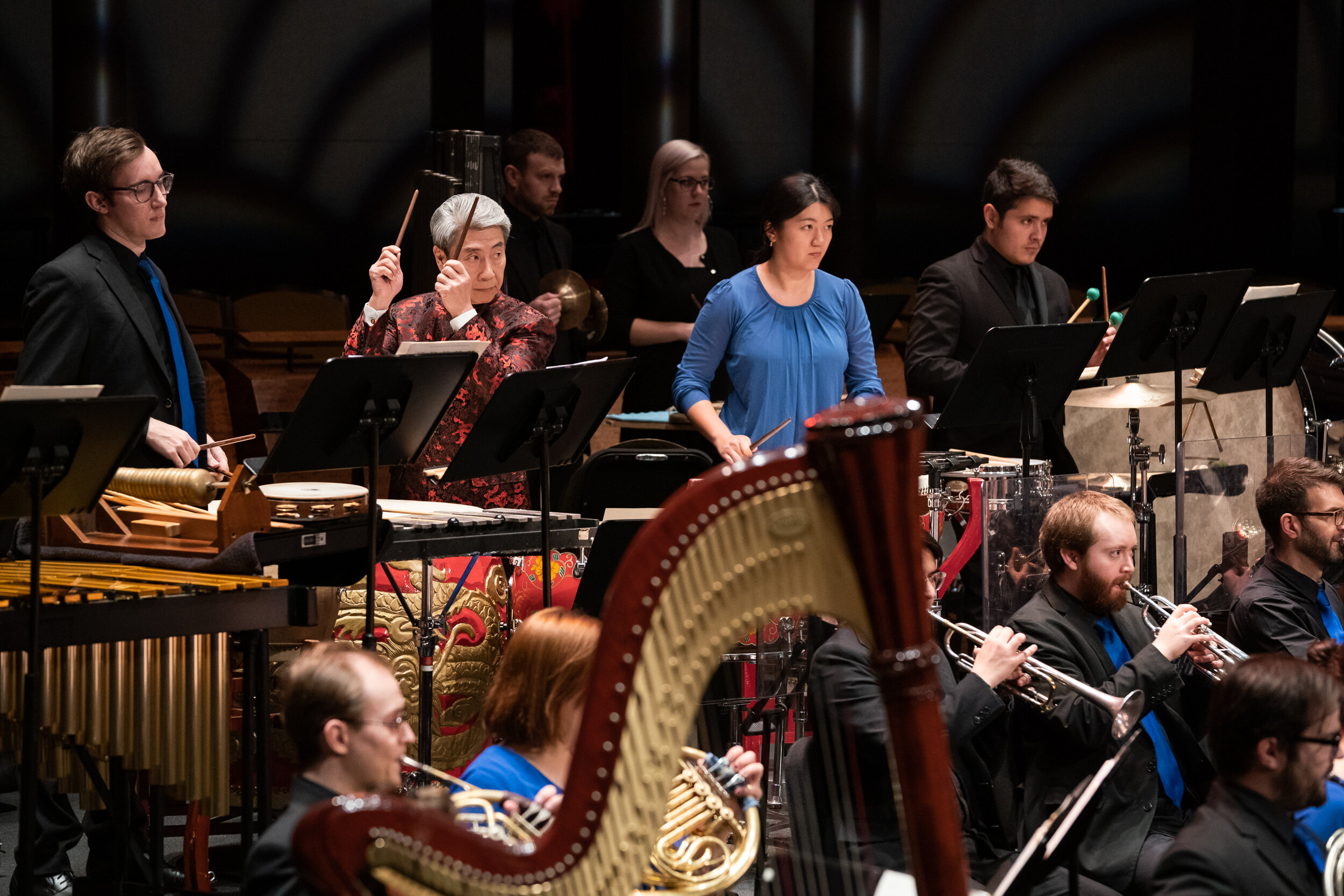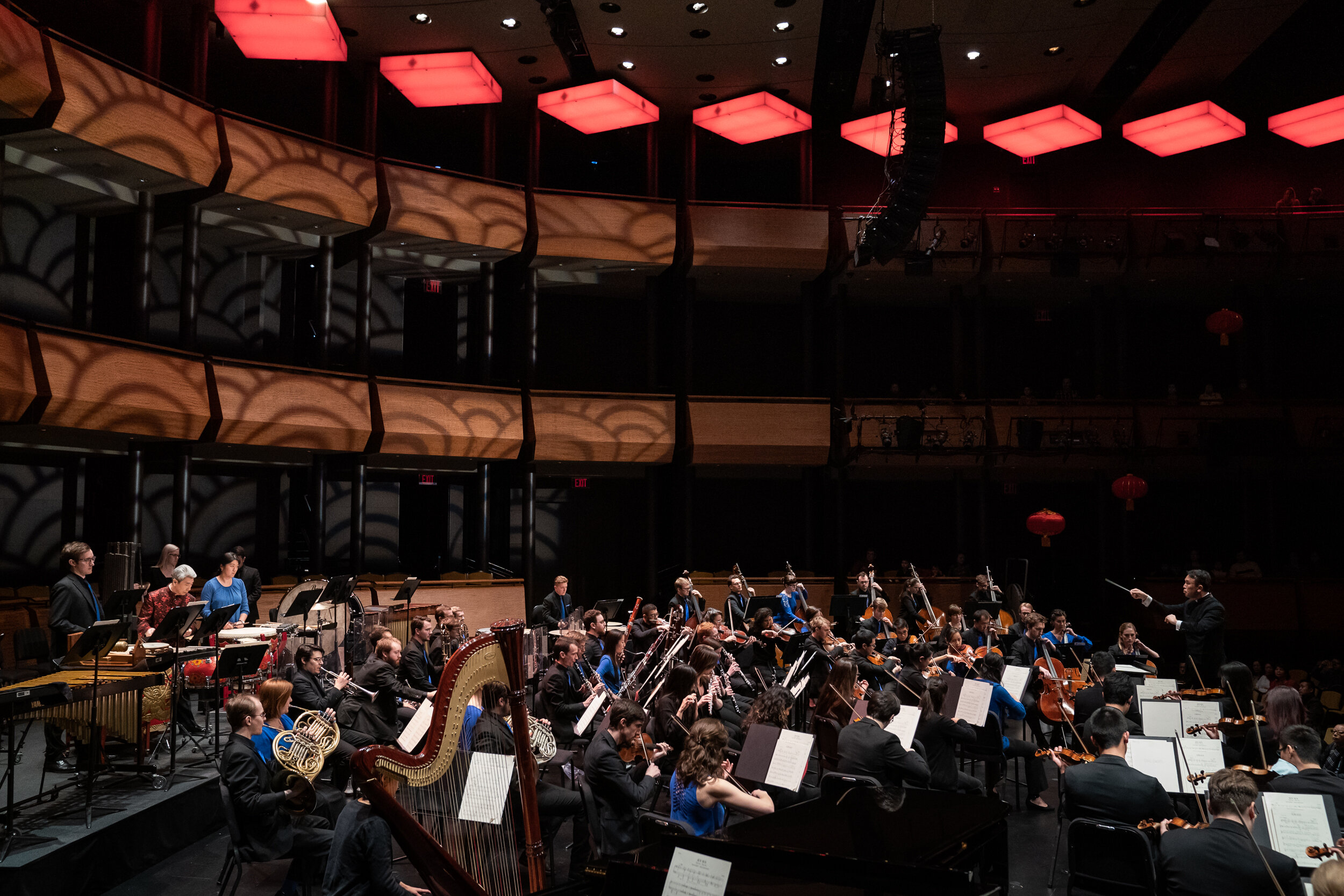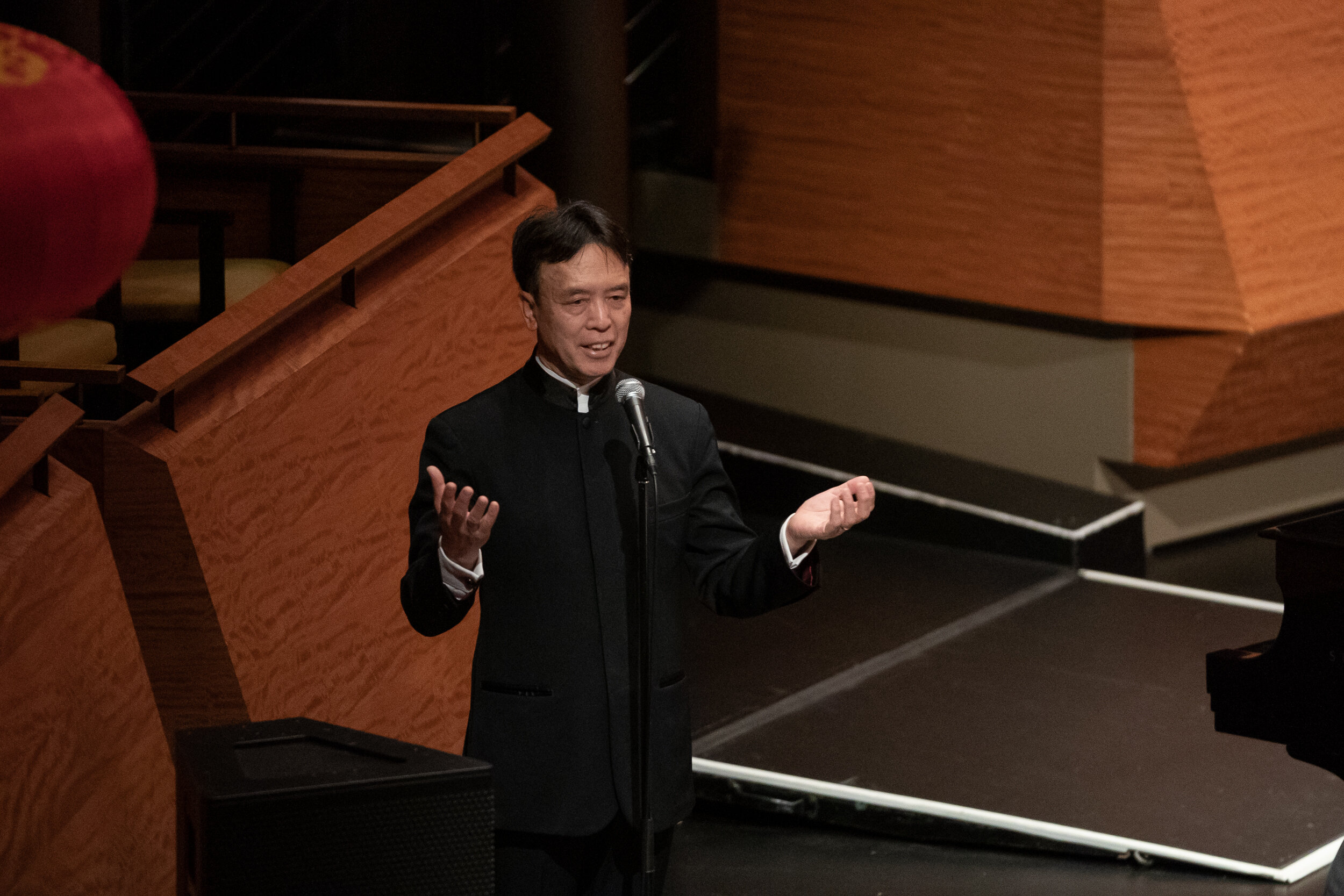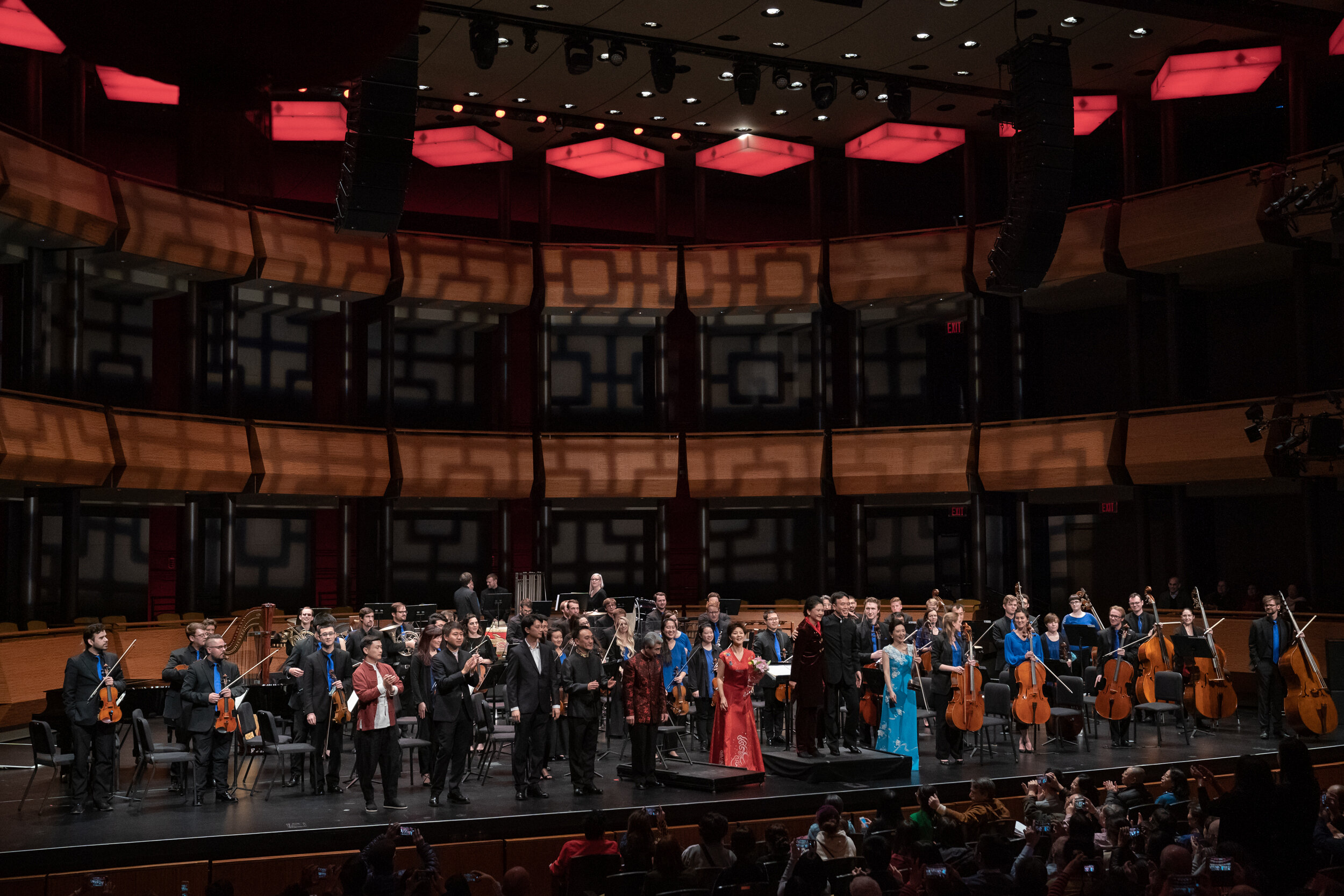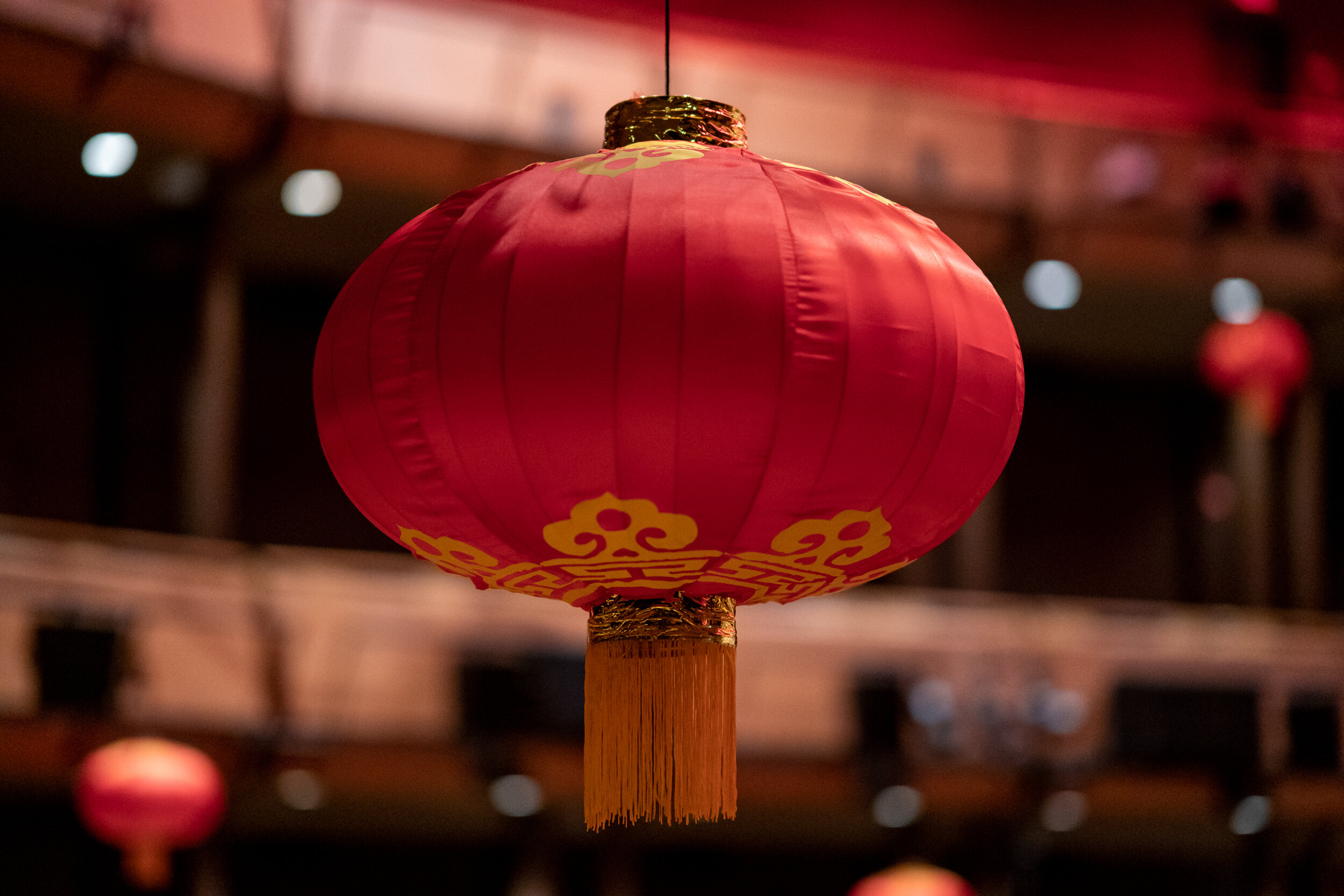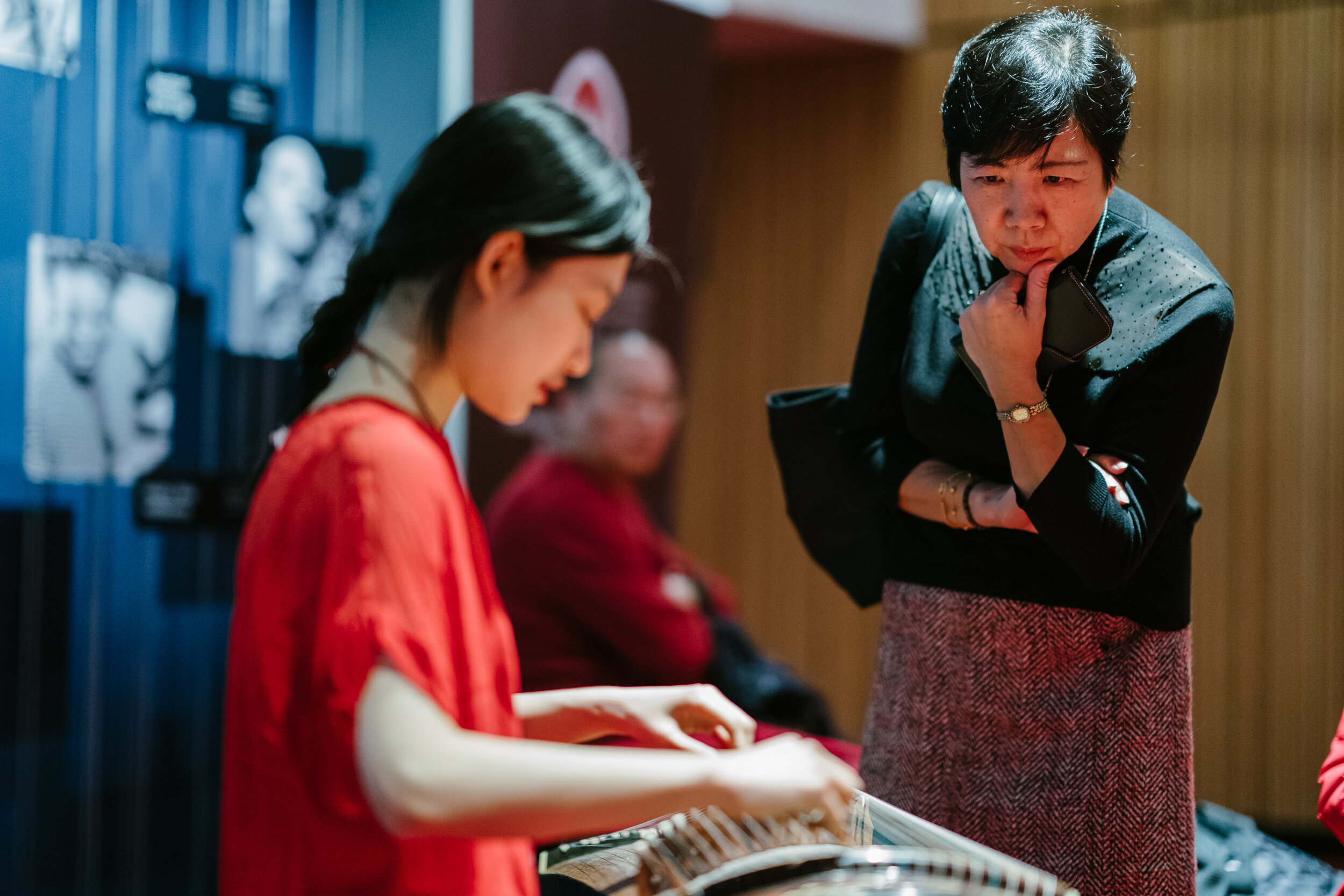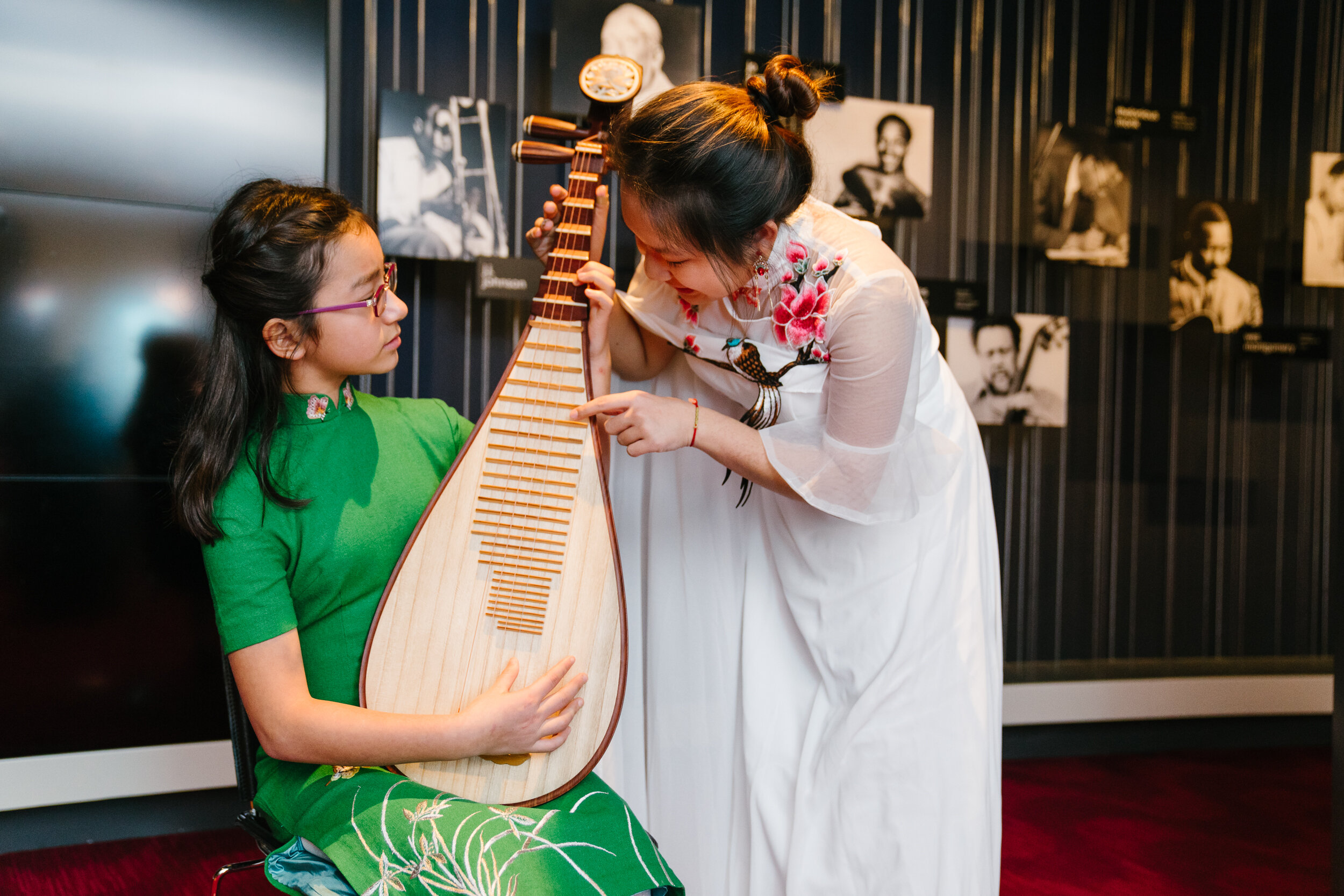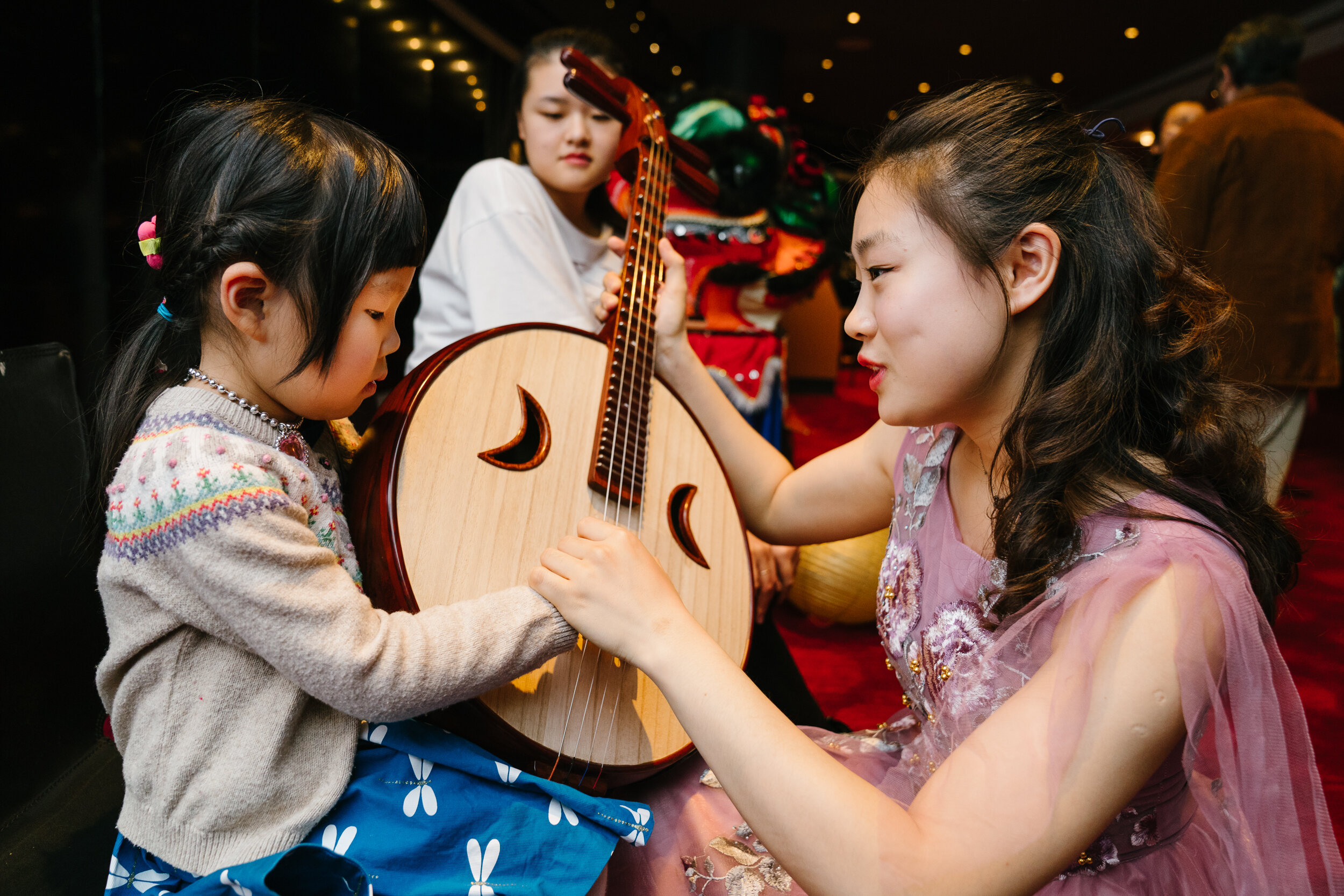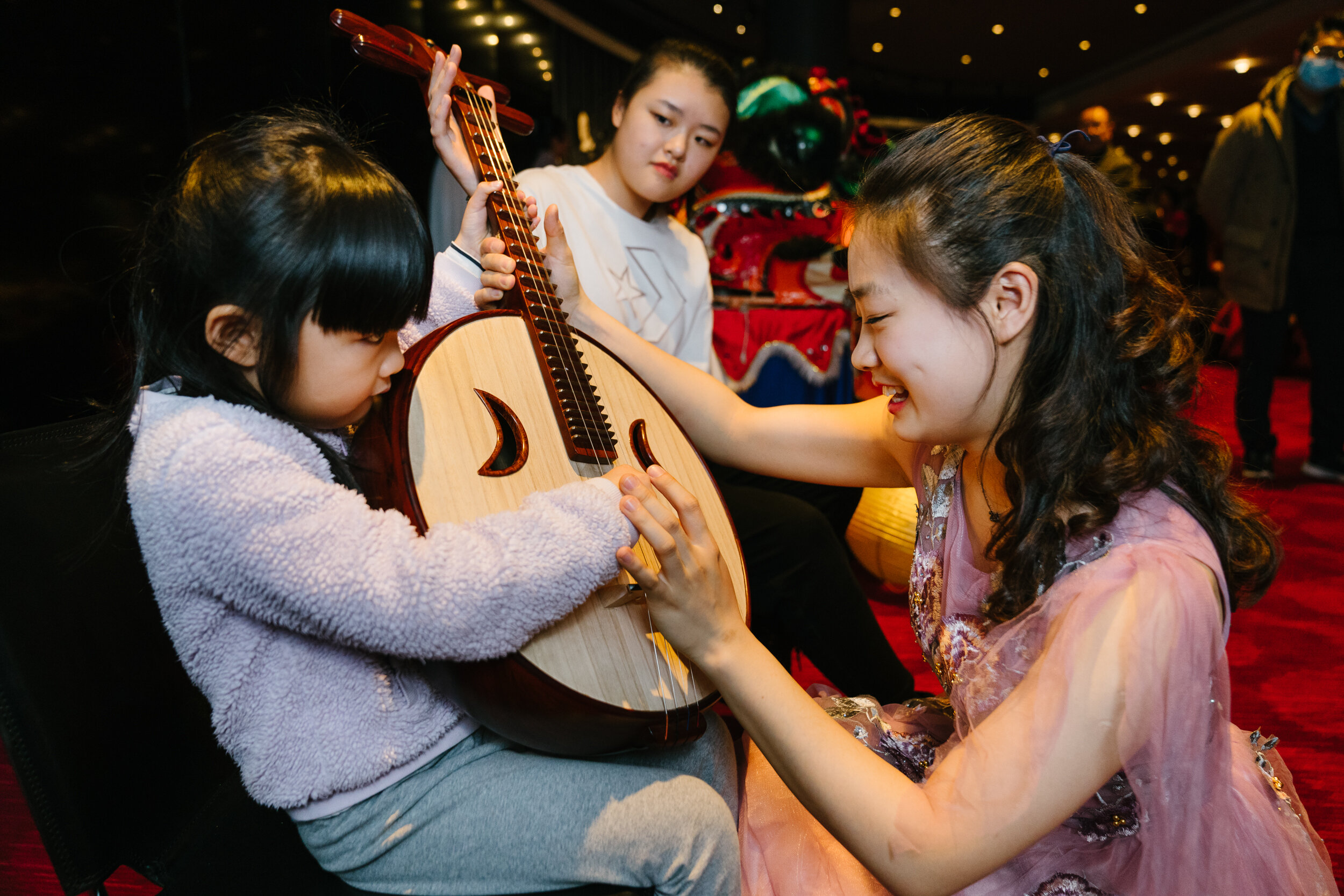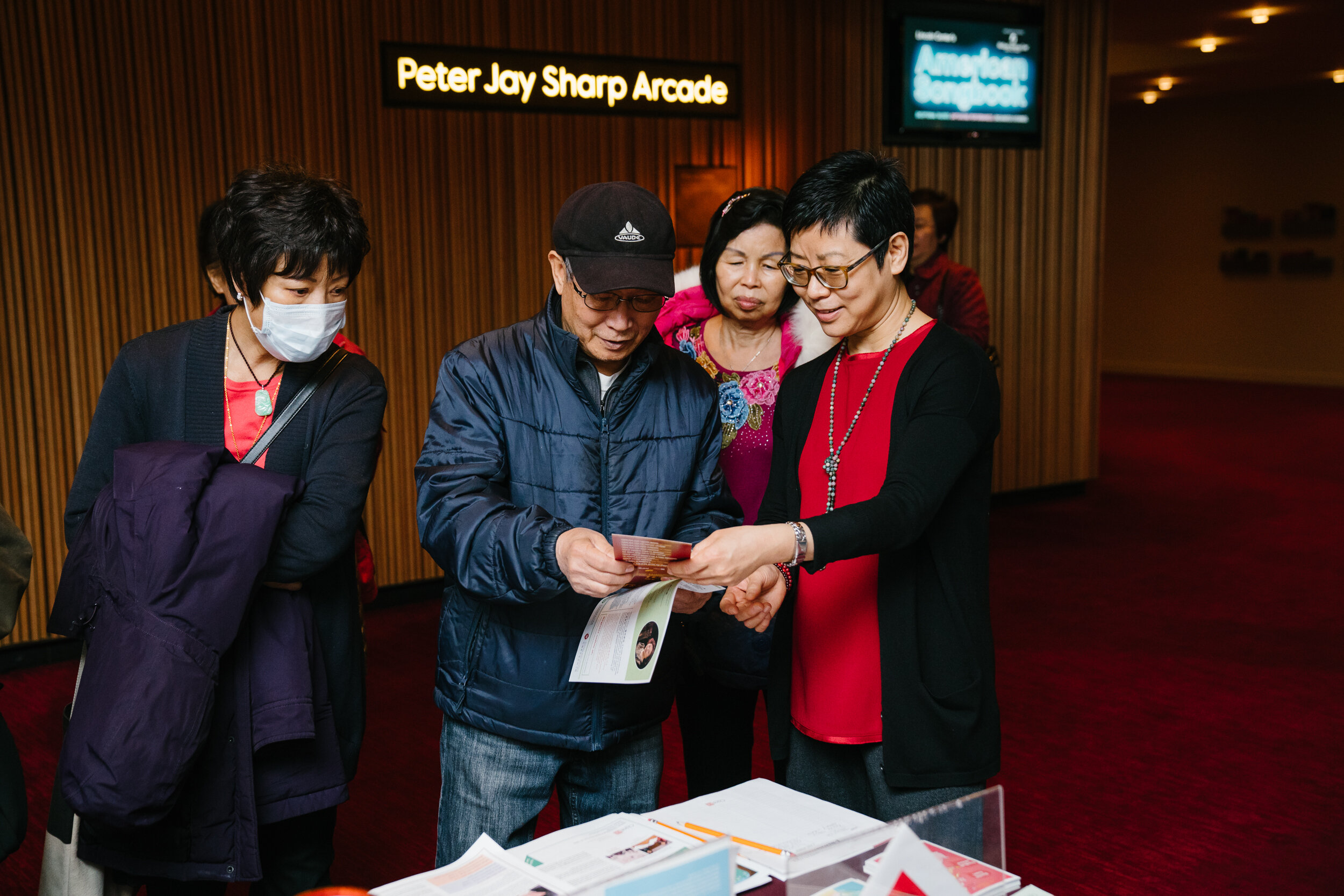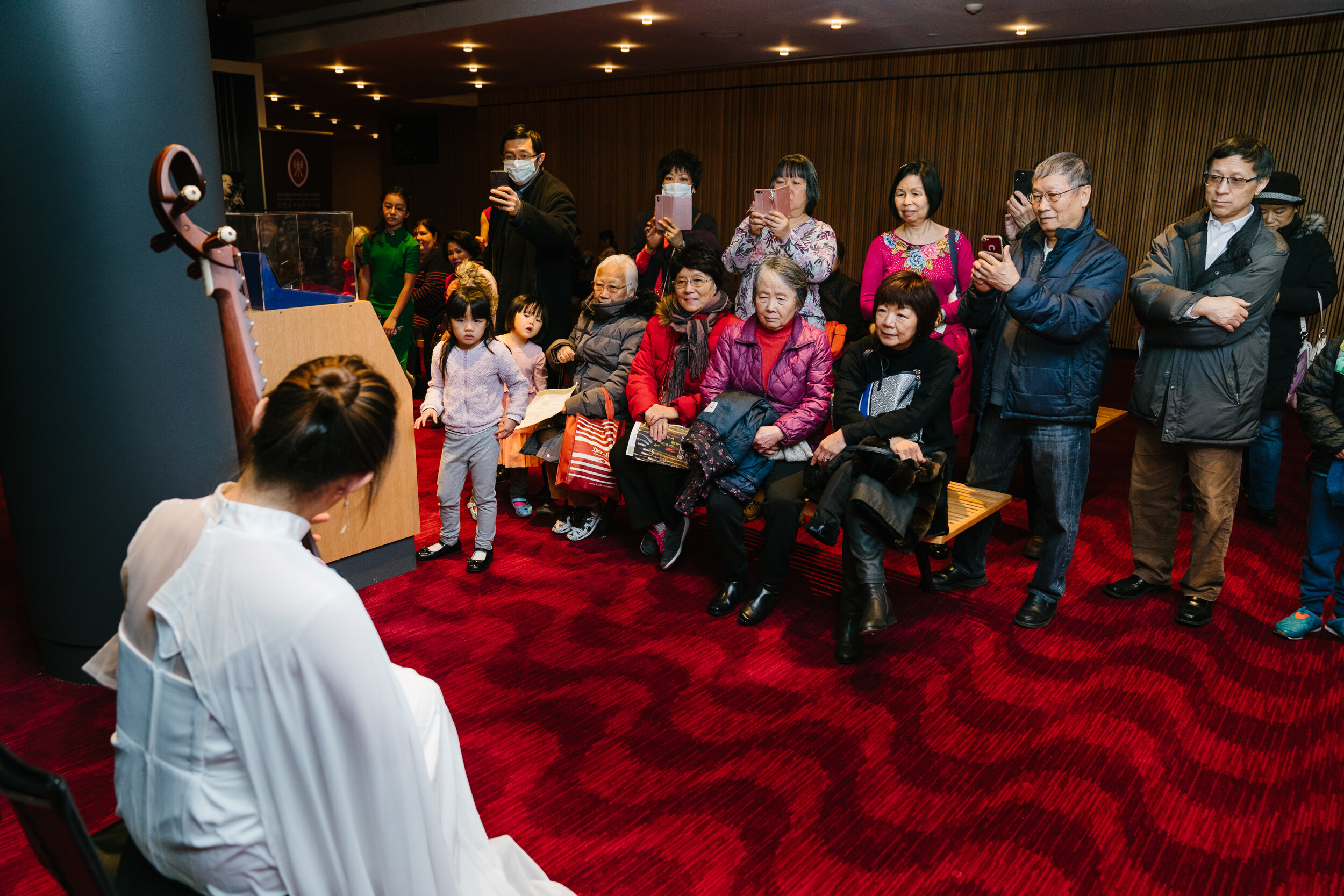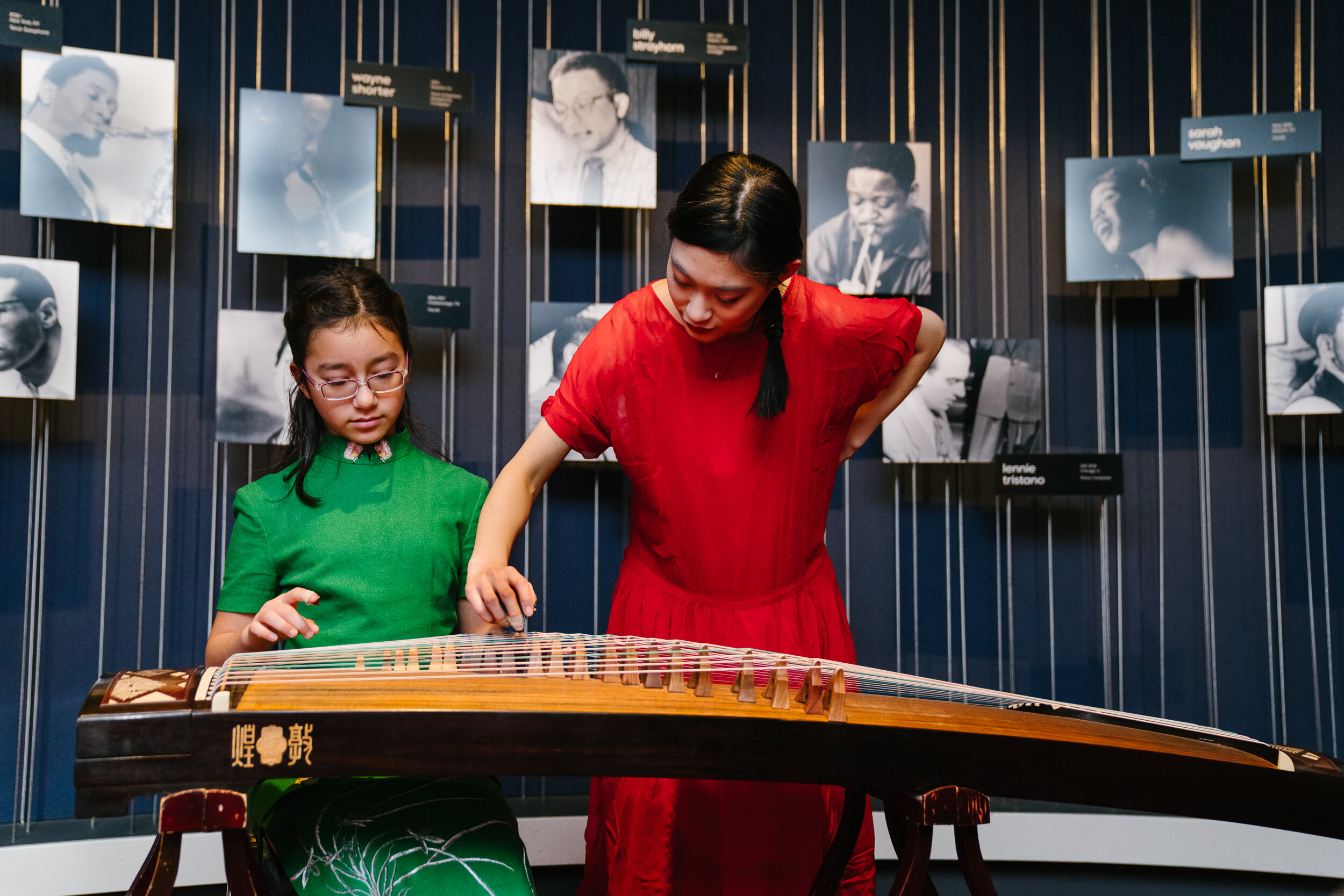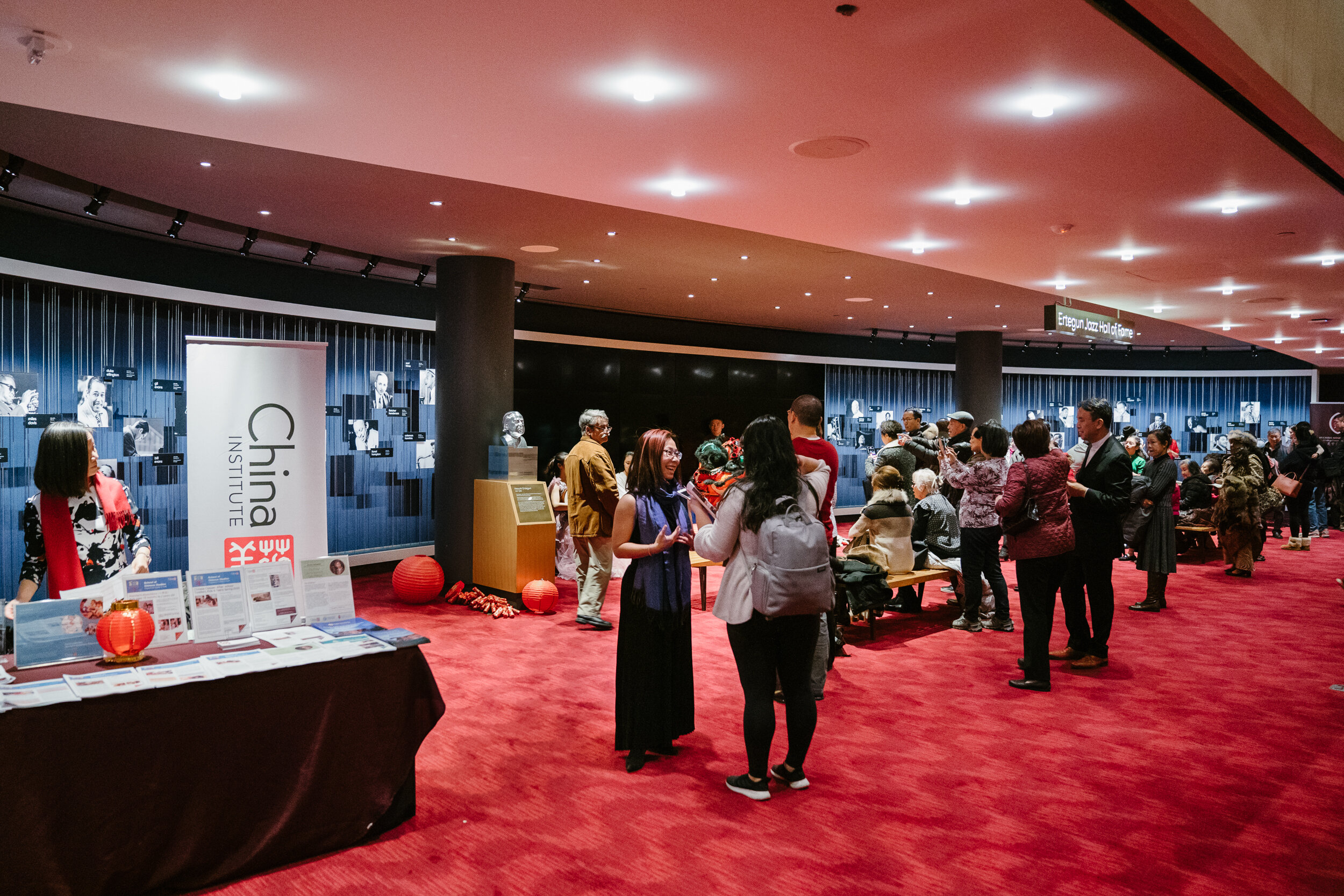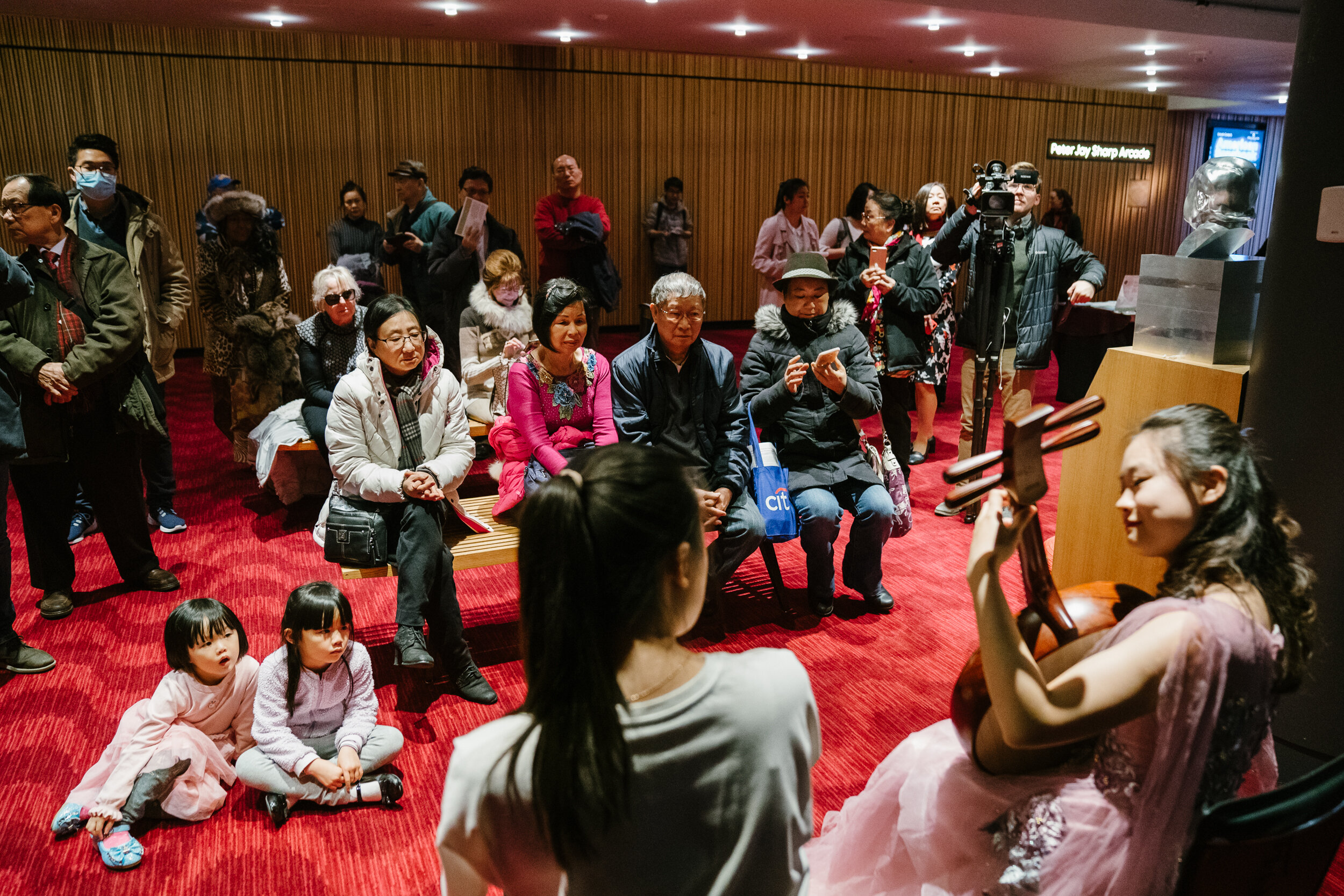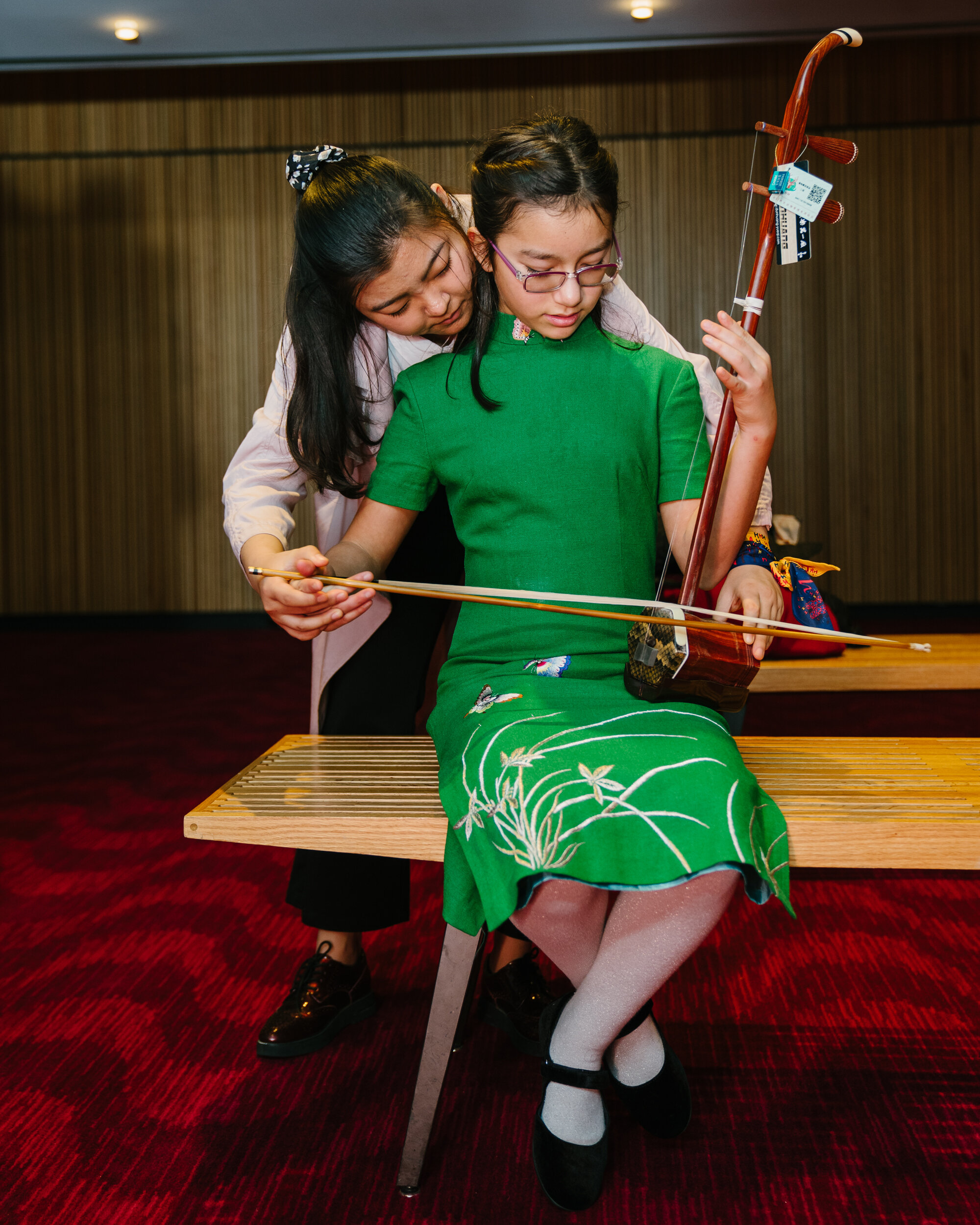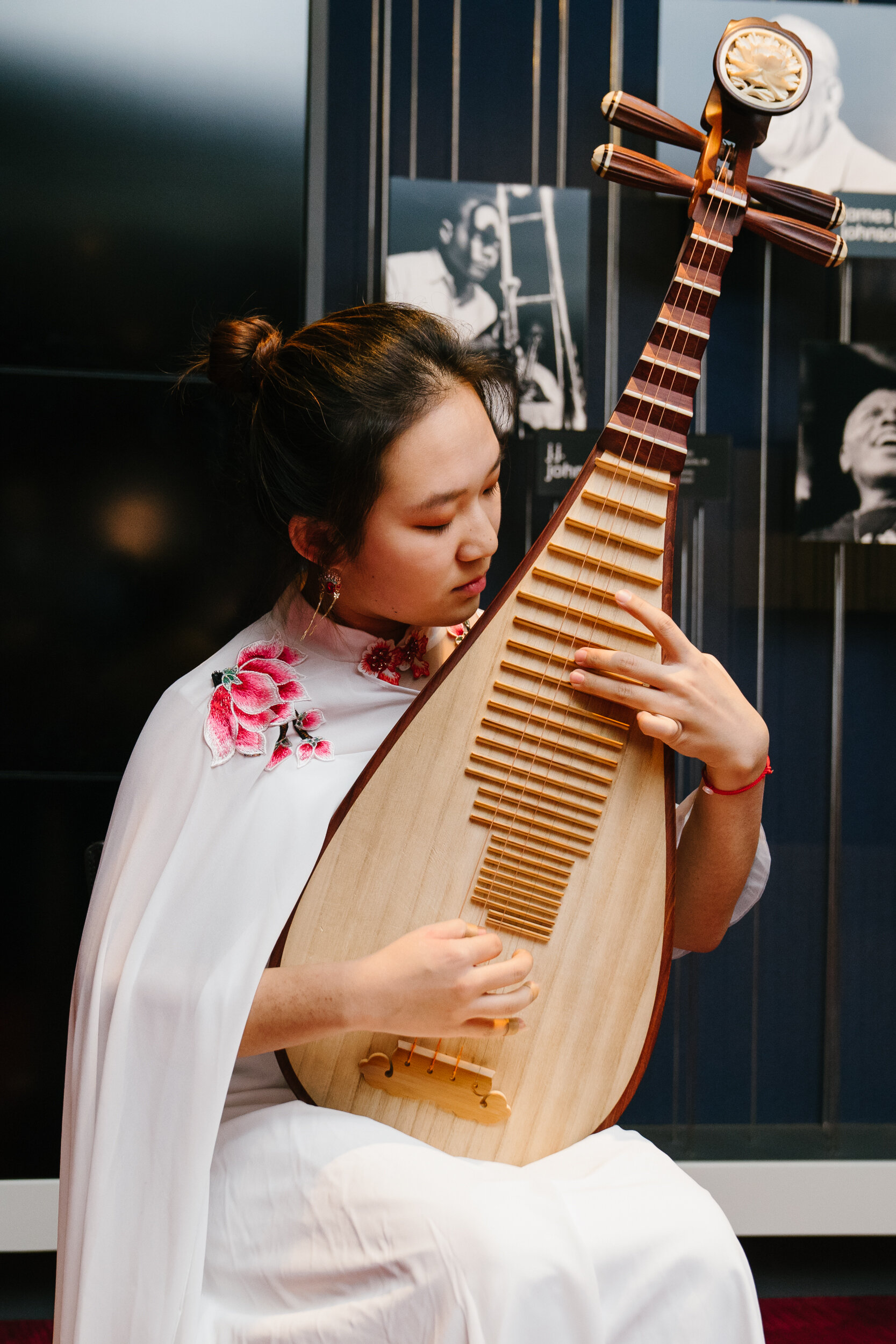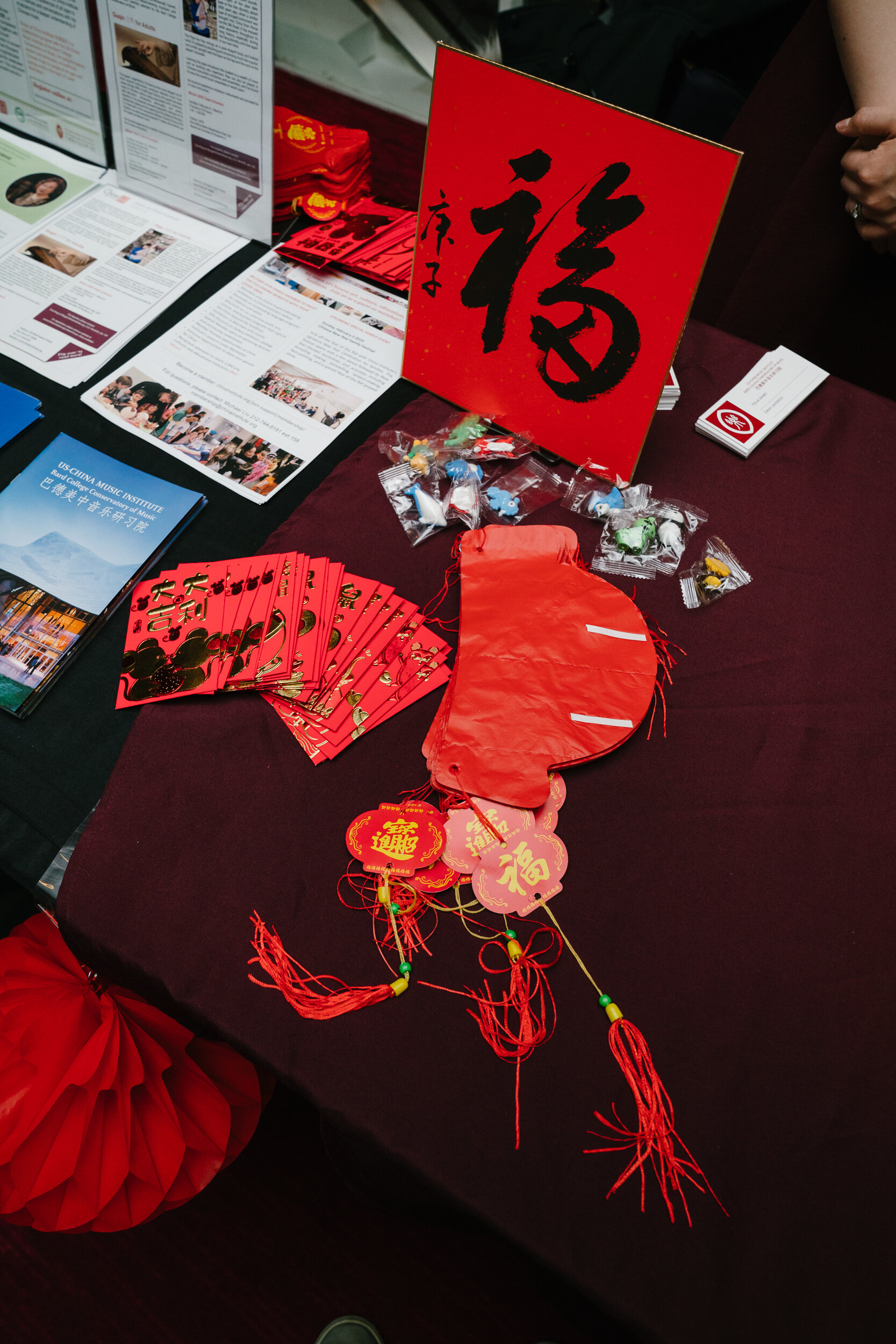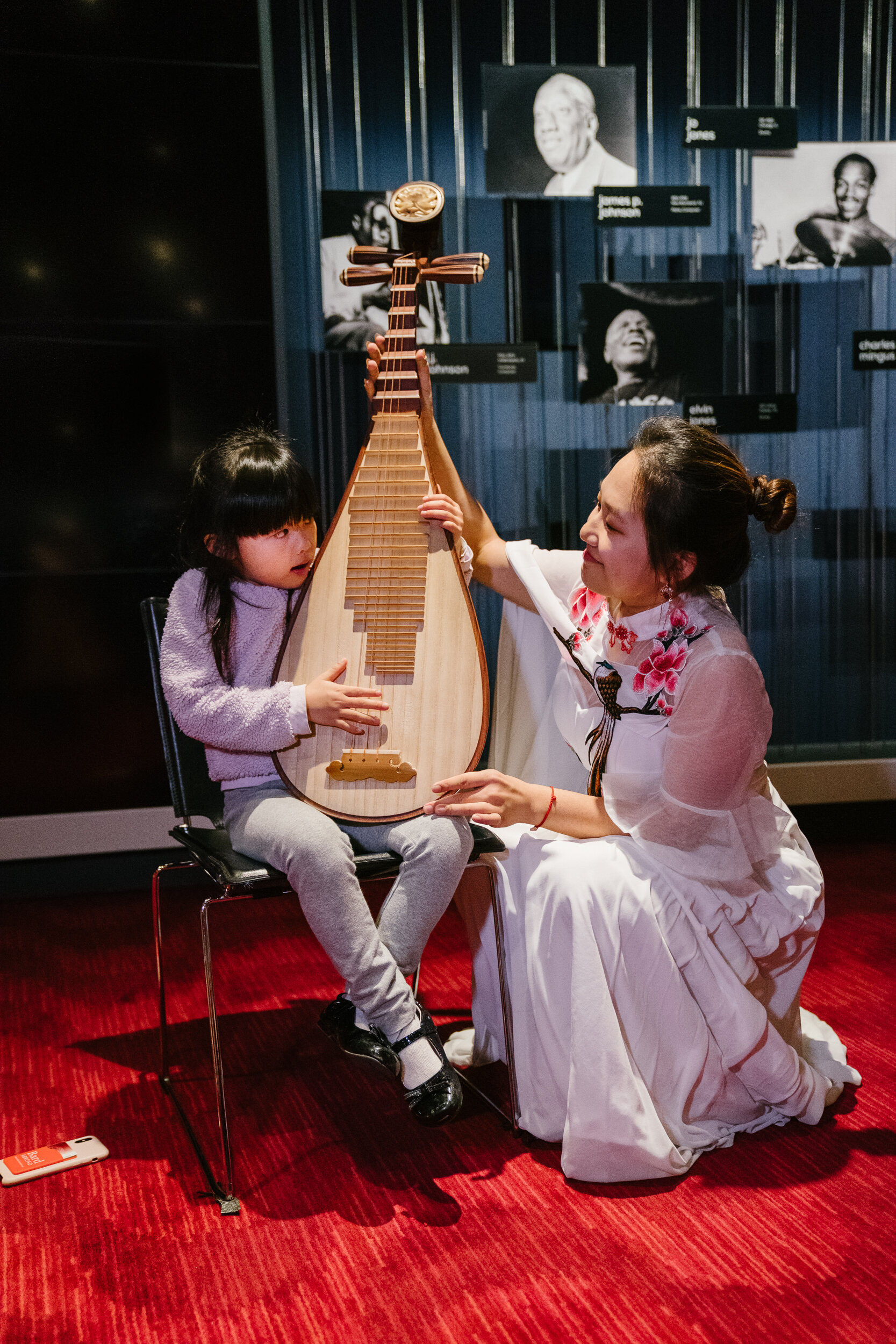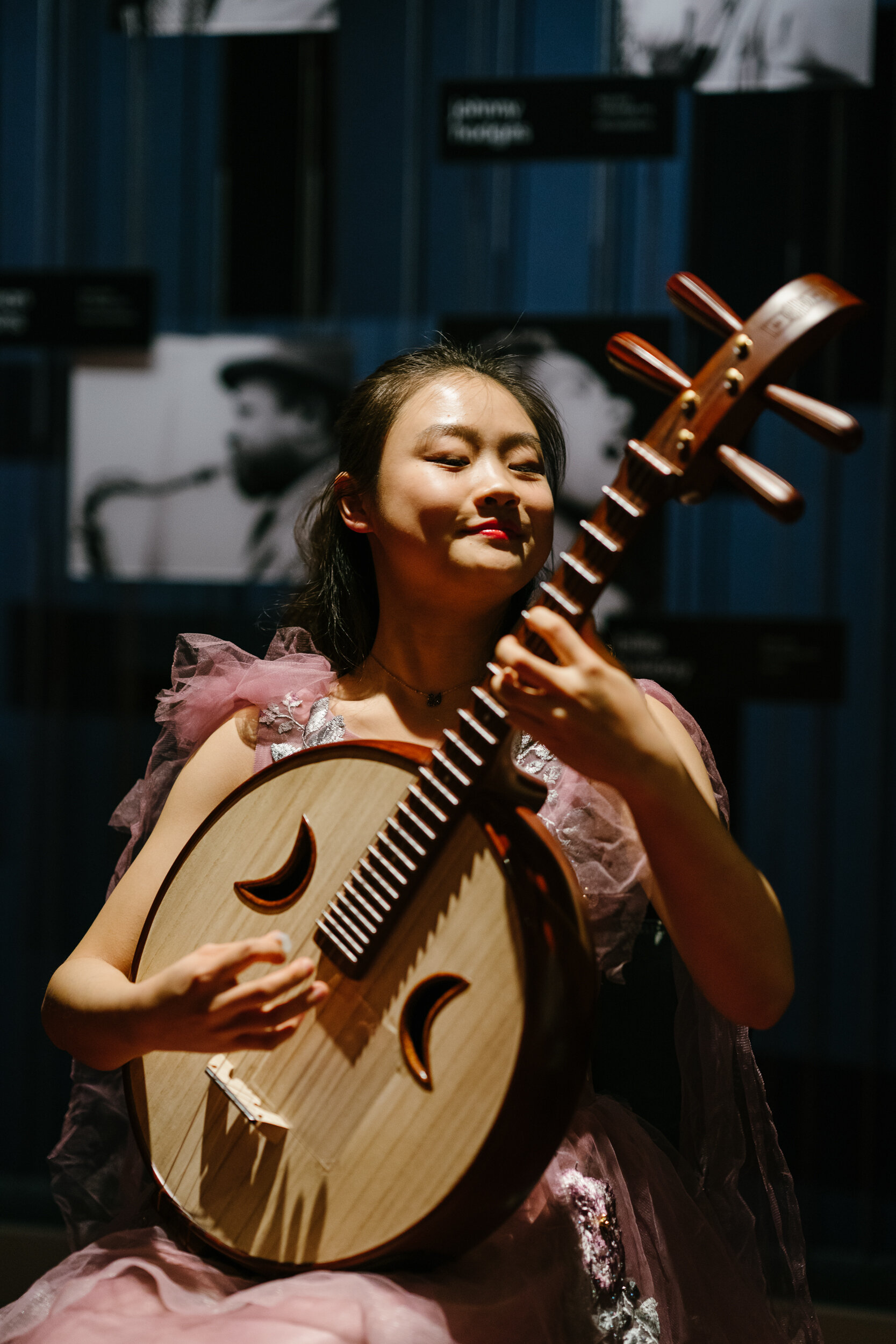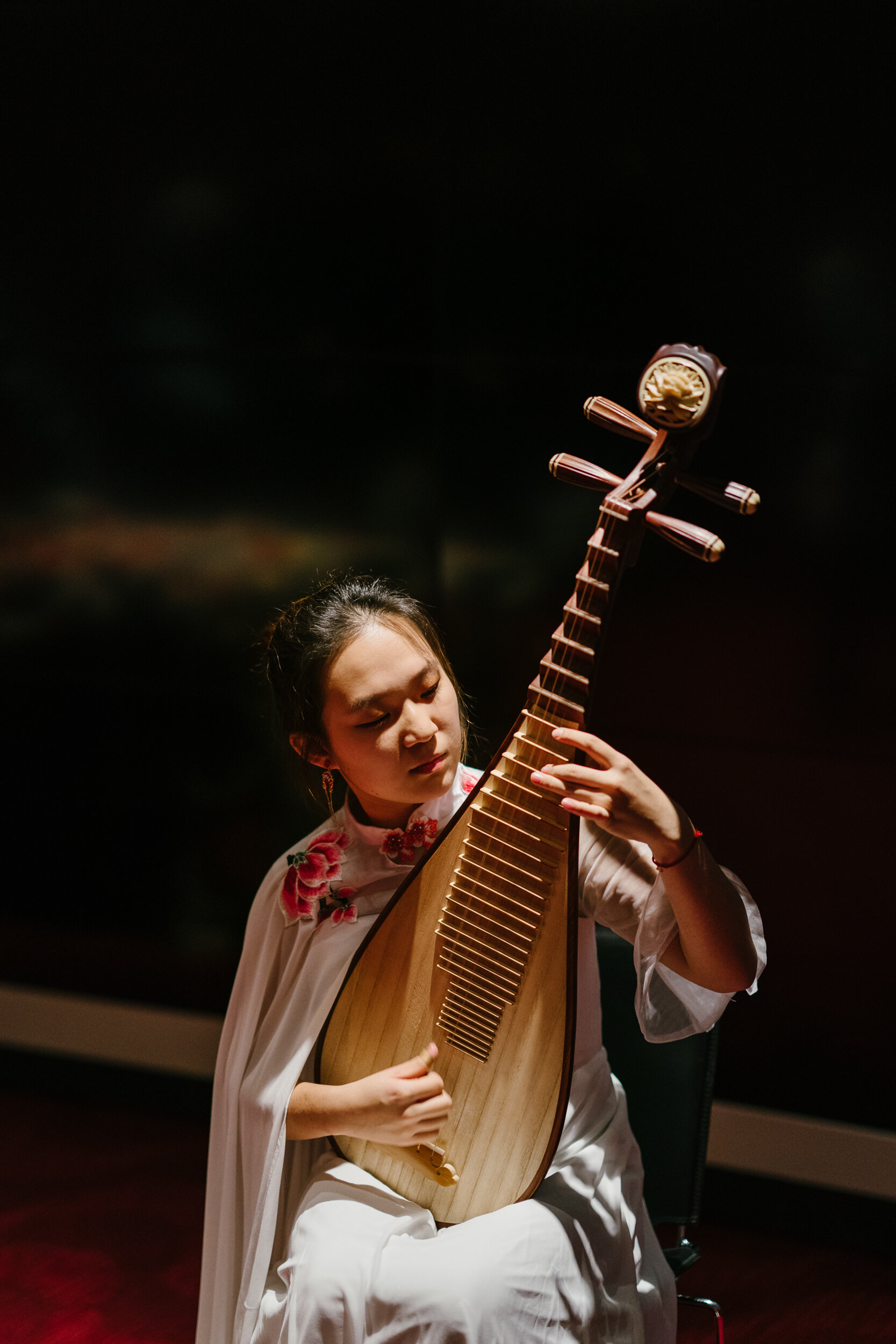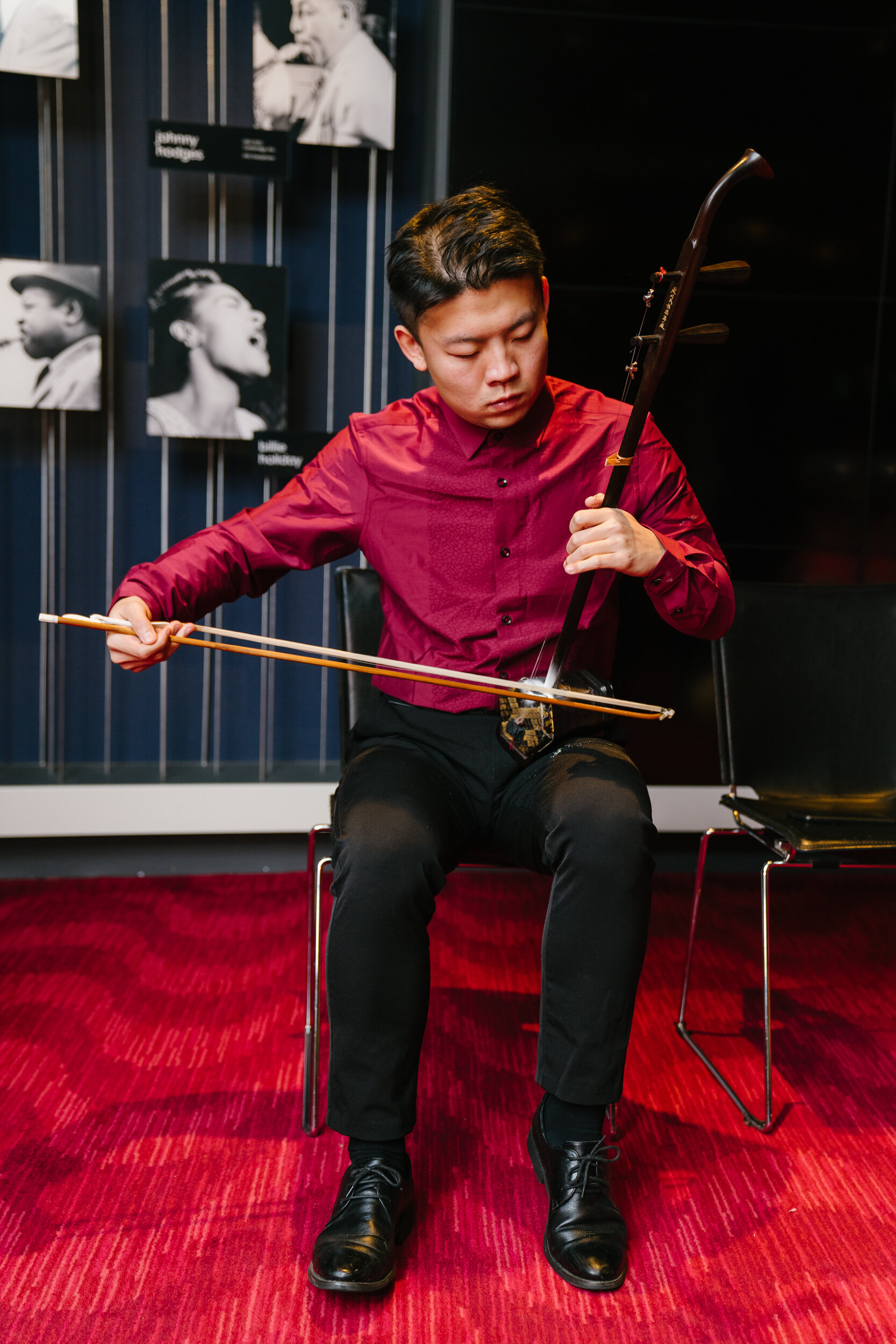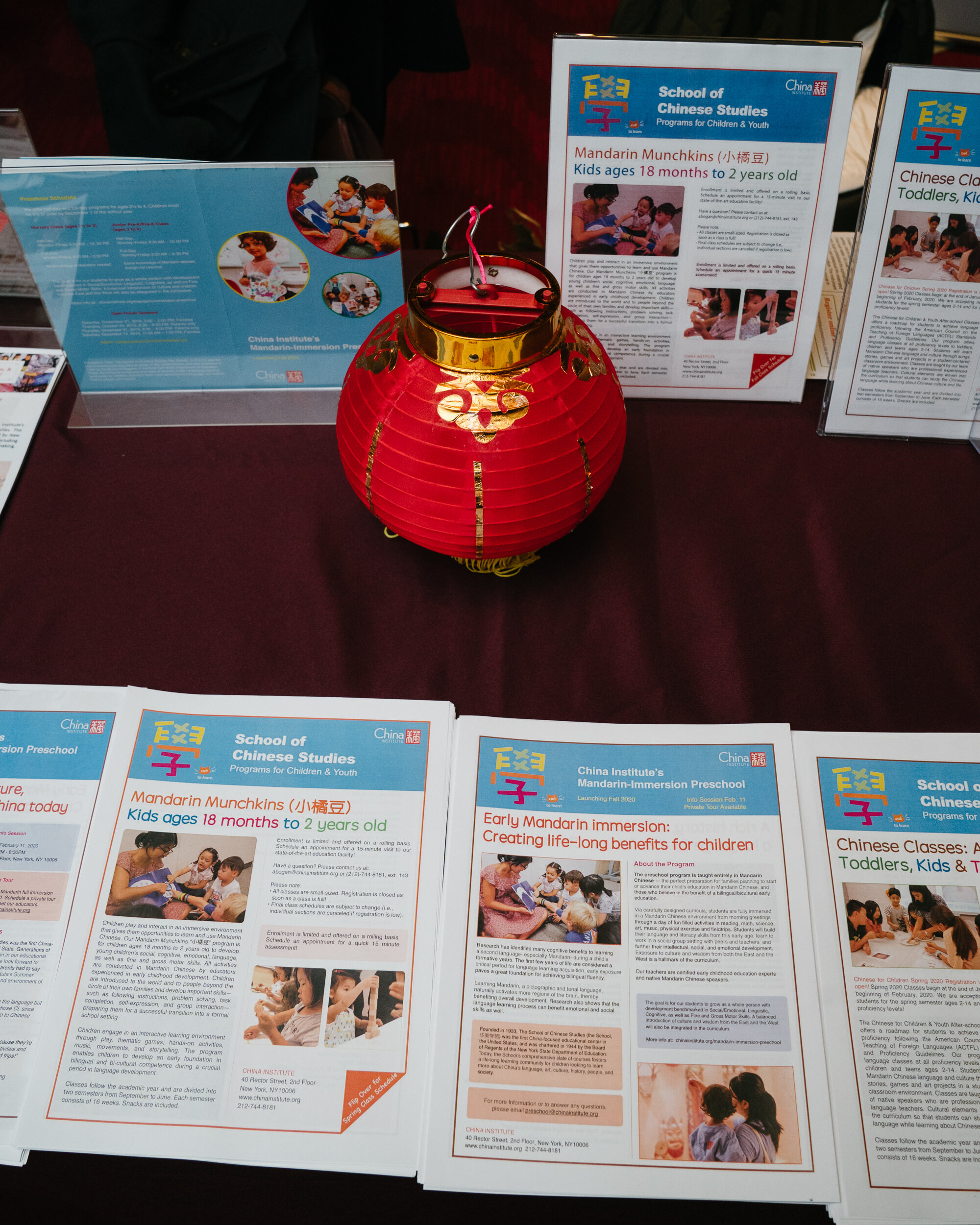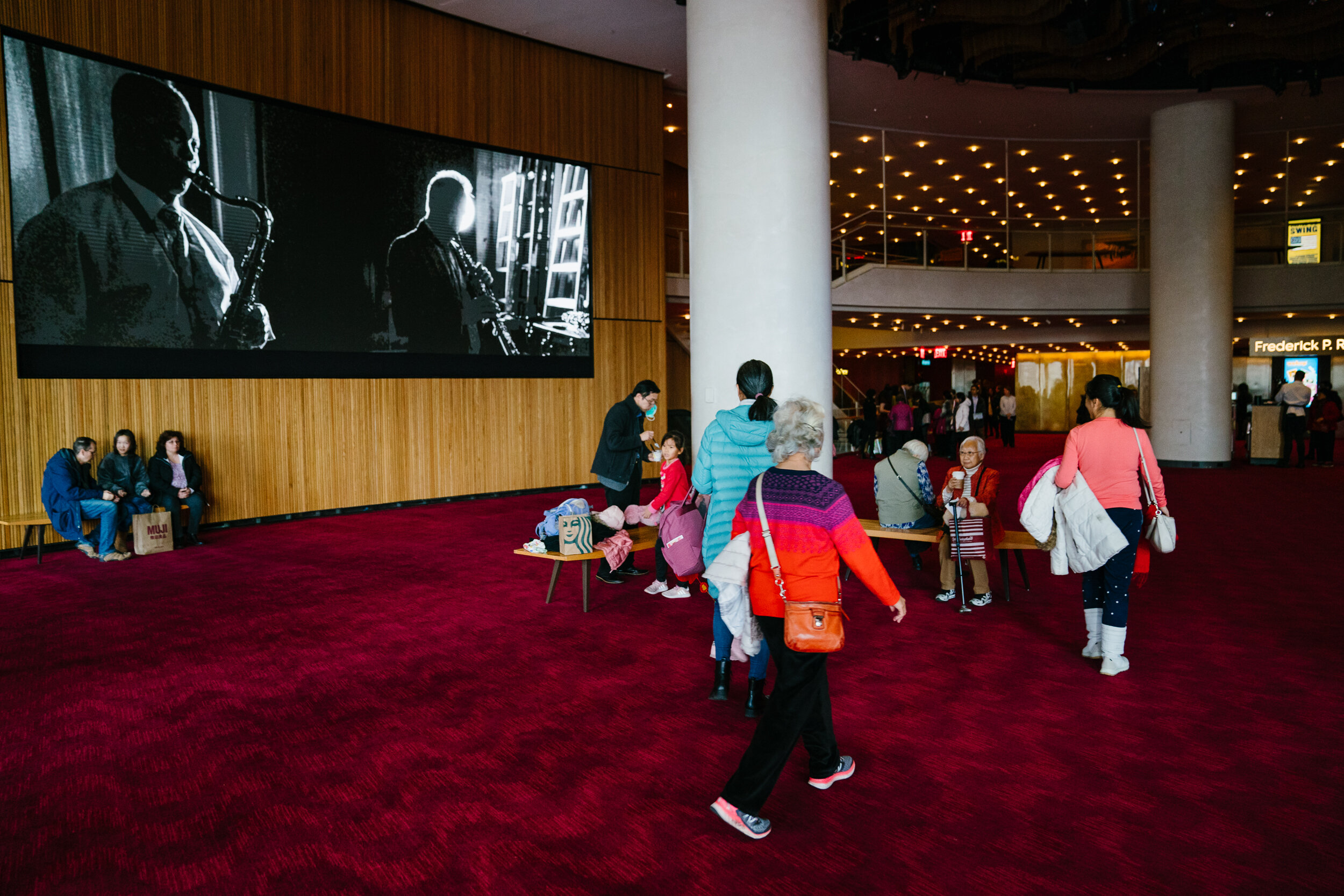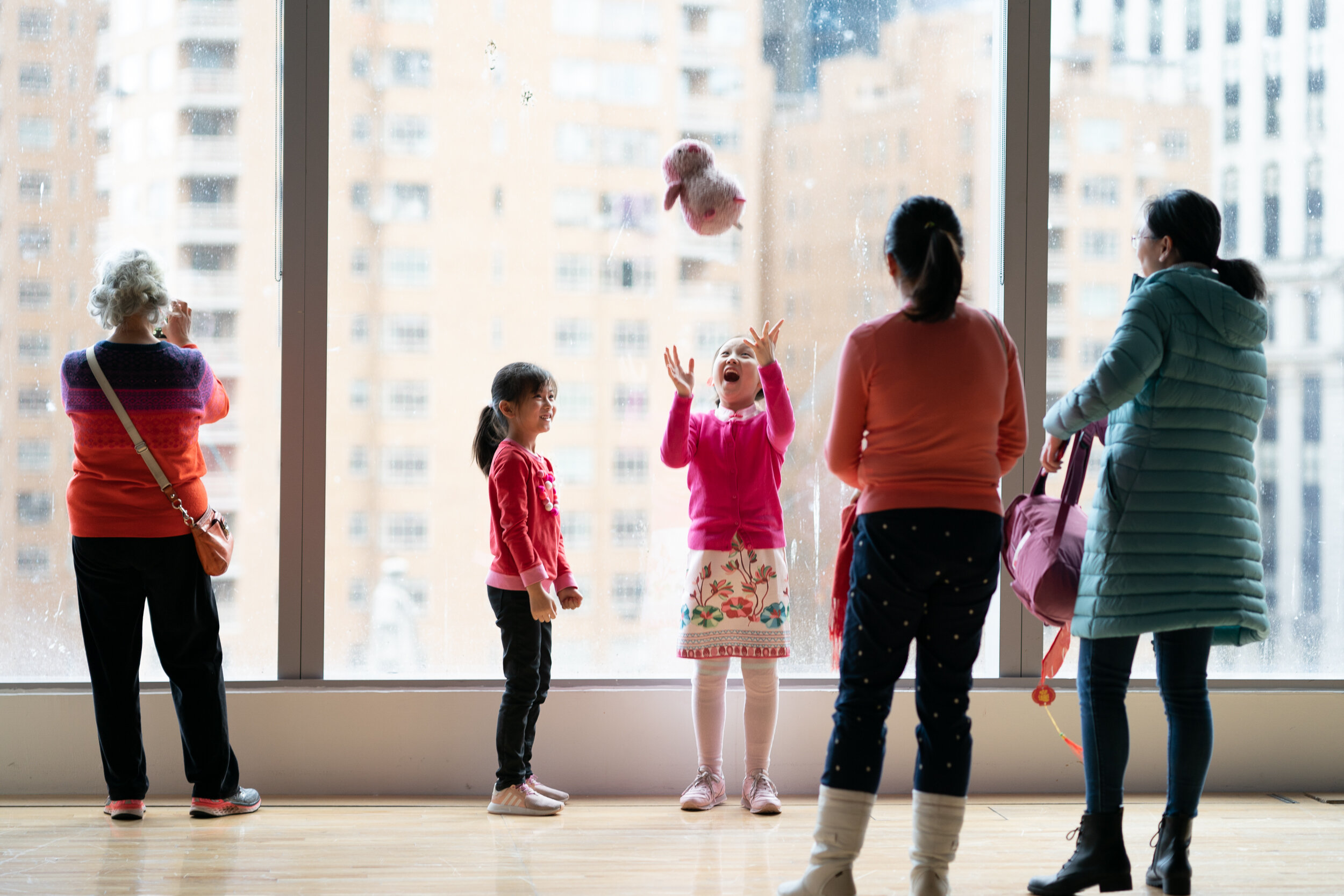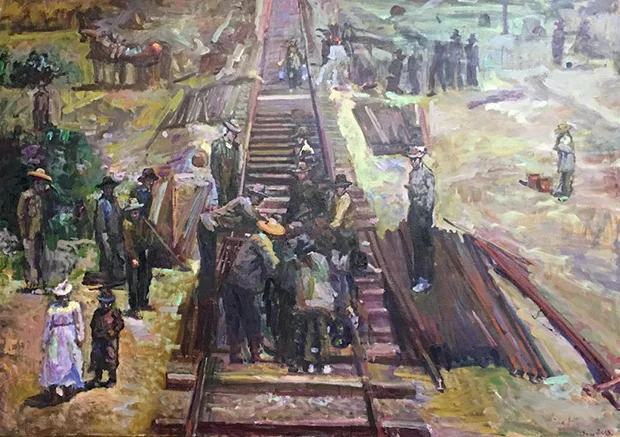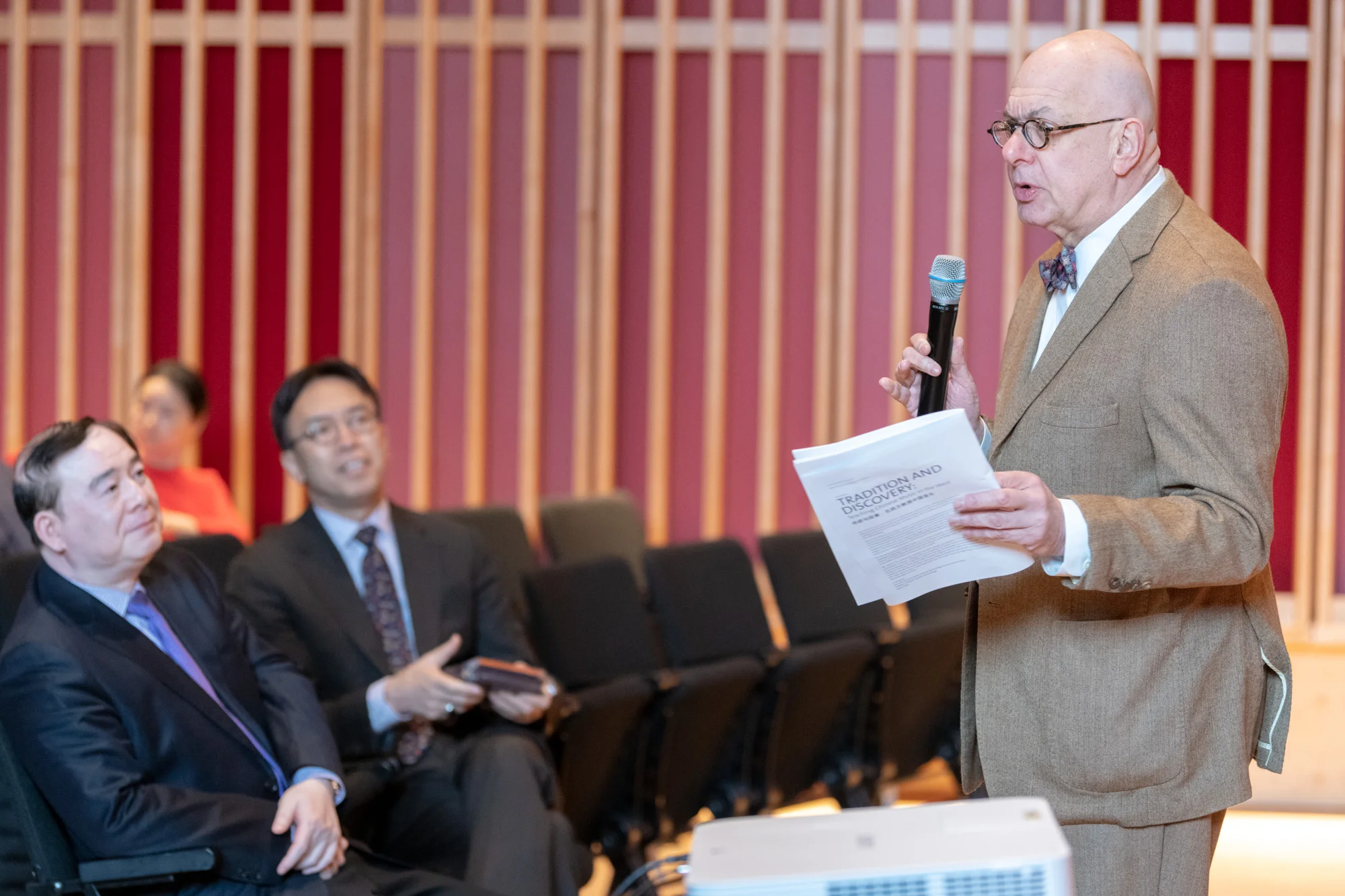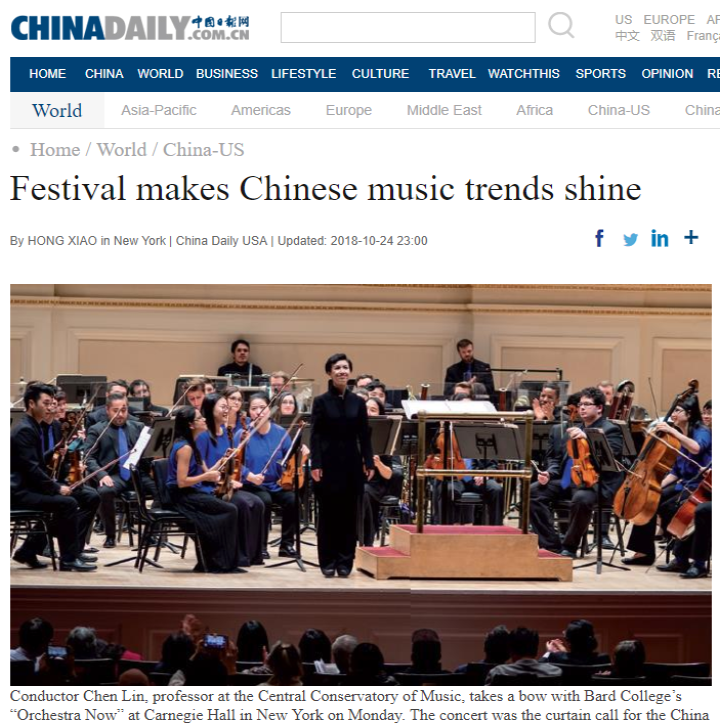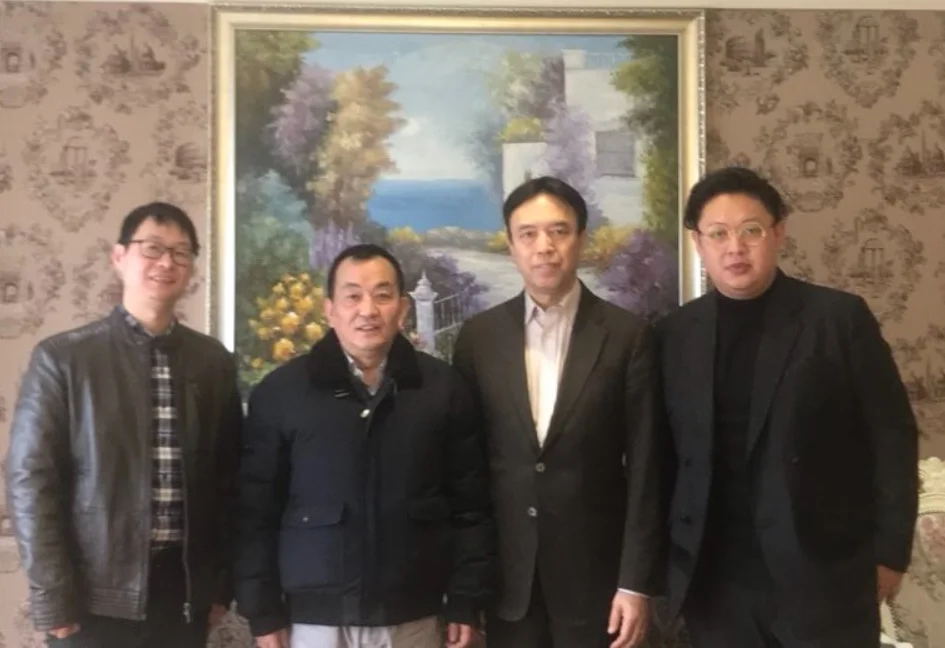Messages of Solidarity and Anti-Discrimination Counter Coronavirus Stereotypes
Bard College President Leon Botstein addresses the audience. Photo by Rock Huang
On Saturday, February 22, Bard College President Leon Botstein attended a concert in Olin Hall to benefit the fight against Coronavirus and offered opening remarks. The concert aimed to raise funds for China’s fight against the Coronavirus and increase awareness about the impacts of the outbreak.
Caroline He, photo by Rock Huang
One of the student organizers, Caroline (Ziyue) He, an anthropology major at Bard, described the outbreak in China and the danger to health care workers and the population in general. She went on to describe discrimination faced by Asians and Asian Americans in the wake of the epidemic. “It’s not about nationality; it’s not about skin color; it’s not about gender. What matters is that we care, and we stand together. We support each other."
President Botstein conveyed Bard College’s full support for its students and advocated for solidarity and understanding. "A virus is a virus. It does not discriminate among humans, and neither should we," said President Botstein. "Coronavirus has had devastating impacts in China. This concert is an important opportunity to be in solidarity with our Chinese students and colleagues."
Student volunteers organized the free benefit concert at Bard with support from the Bard Chinese Student Organization, the Center for Civic Engagement, the Bard College Conservatory of Music, and the US-China Music Institute. Chinese instrumental music students, together with other students from the Conservatory of Music, performed Chinese songs such as “The Dance of the Yao People,” "The Silk Road Camel," and "Dun Huang.” The concert repertoire was arranged and directed by Conservatory student Zongheng Zhang, formerly of the Hubei Conservatory of Music in China.
From left to right: Conservatory students Arnav Shirodkar (percussion), Yuling Nan (ruan), and Sibei Wang (guzheng) perform "The Silk Road Camel" (丝路驼铃) by Yong Ning. Photos by Sonita Alizada
The Director of the US-China Music Institute, Jindong Cai, commented, "Politics so often divides us, but music creates connections. I'm so proud of the students of the Bard College Conservatory and the US-China Music Institute for putting together this event to show their unity and support."
During the concert, the hosts encouraged attendees to give online or to place donations in decorated boxes around the hall. The benefit concert is part of an ongoing fundraising effort by students around the COVID-19 outbreak. Ahead of the concert, Bard student leaders collaborated with students from Vassar College, Colby College, and Oberlin College, with the help of the Cleveland Clinic and John Hopkins University Alumni, to raise more than $20,000. These funds purchase sanitary products and food for hospitals in the most affected regions.
The fundraising effort is still active online, please visit the donation website https://www.gofundme.com/f/coronavirus-relief-benefit-concert-at-bard-college
Bard College student organizers of the Coronavirus Benefit Concert. Photo by Rock Huang

